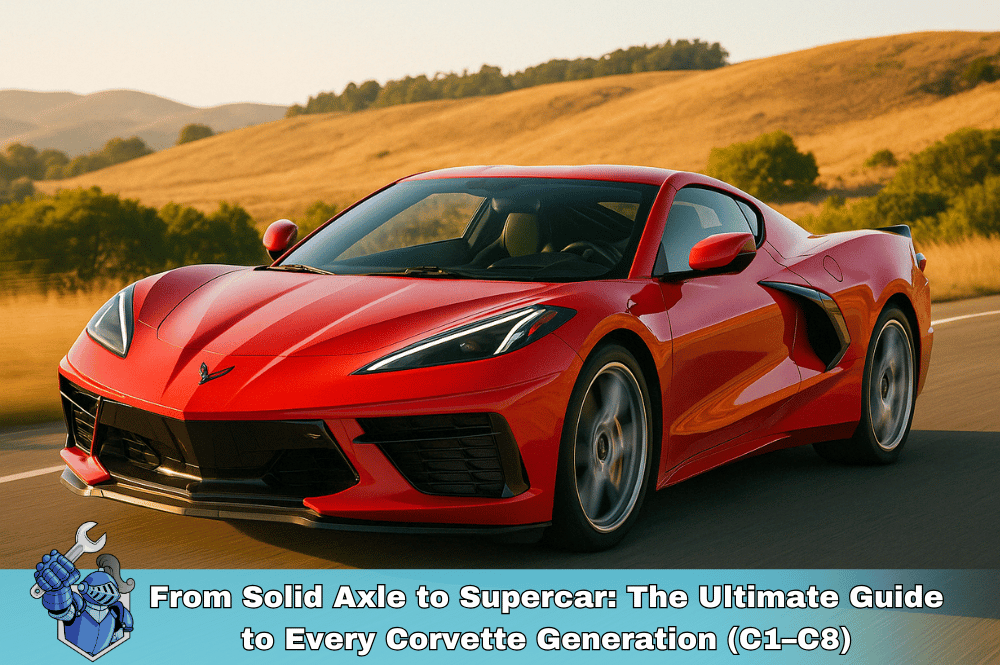As of early 2025, electric vehicles account for roughly 8% to 9% of all new car sales in the United States. Tesla leads the charge, but other U.S. automakers like Ford and GM are rapidly expanding their EV offerings.
The electric vehicle (EV) landscape is no longer a futuristic concept—it’s a full-blown battlefield. And right now, U.S. automakers are fighting to keep control of home turf as overseas giants push hard into the American market. This isn’t just a trend—this is a high-stakes transformation of the auto industry as we know it.
In the battle for EV market dominance, American electric vehicle manufacturers are innovating, expanding, and lobbying to stay relevant. The stakes? Market share, consumer loyalty, and the very future of the U.S. auto industry.
Let’s take a deep dive into this EV war, comparing US vs overseas EV competition, the strategies of American automakers, and what it all means for consumers, investors, and the road ahead.
American Electric Vehicles: A Fast-Changing Landscape
U.S. brands like Ford, GM, Rivian, and Tesla have made massive strides in electrification of transportation. Once considered laggards behind European and Asian rivals, they’re now producing compelling EVs with advanced electric powertrains, increased range, and competitive pricing.
But while brands like Tesla have been ahead of the curve, others are playing catch-up—and it’s a game of inches.
Let’s look at the US EV market share snapshot:
- Tesla holds over 50% of the U.S. EV market but is seeing rising competition.
- Ford is gaining traction with the Mustang Mach-E and F-150 Lightning.
- GM is revamping its fleet with Ultium-based models, including the Chevrolet Blazer EV and Silverado EV.
- Rivian, a startup darling, is tackling the electric truck market with rugged adventure-ready builds.
Yet, overseas contenders like Hyundai, Kia, Volkswagen, BMW, and BYD are aggressively expanding in the U.S., with sleek, tech-forward EVs and competitive pricing strategies. The battle for EV territory is heating up—and American manufacturers need more than legacy to win.
Comparing US and Foreign EVs: Tech, Range, and Appeal
One major reason overseas brands are thriving in the U.S.? Superior battery technology and software.
Brands like Hyundai and Kia (especially the IONIQ 5 and EV6) offer ultra-fast charging, unique design, and seamless vehicle innovation. Chinese automakers like BYD are bringing high-tech features and affordability, shaking up U.S. consumer expectations.
Meanwhile, some consumers are still asking: "Are US electric vehicles as good as foreign EVs?" In many ways, yes—but with important caveats. American EVs tend to focus on performance and rugged appeal (think Rivian or the Chevrolet Bolt EUV), while foreign competitors often highlight design, efficiency, and high-end user interfaces.
Challenges for Legacy US Automakers in EV Transition
One of the biggest hurdles for traditional U.S. brands? Pivoting away from ICE (internal combustion engines) without losing their identity—or market share.
Key issues include:
- Supply chain issues for US EV manufacturers (especially for lithium and chip components).
- Lack of comprehensive charging infrastructure in rural and suburban areas.
- Slower adaptation to the software-first mindset that defines many foreign EVs.
There’s also the problem of affordable US electric vehicles. Many consumers are priced out of newer models, especially when compared to more accessible options from abroad.
Government Incentives & Infrastructure Impact
The Inflation Reduction Act (IRA) and other federal programs aim to bolster U.S. EV production and make US-made EVs more competitive.
Key incentives include:
- Up to $7,500 in federal tax credits for qualifying vehicles.
- Bonus credits for vehicles assembled in the U.S. with American-made components.
- Investment in EV infrastructure, including charging stations and battery facilities.
But there’s a catch. Some overseas EV brands have found loopholes—like assembling vehicles in North America—to qualify for credits, blurring the lines between "foreign" and "domestic."
US Automakers EV Strategy: Adapt or Die
So how are U.S. automakers responding in this fight for EV market dominance?
- Ford is doubling down on electric pickups and SUVs, with heavy investment in BlueOval City and plans for global EV market competition.
- GM is going all-in on its Ultium platform to standardize electric builds across brands like Chevy, GMC, and Cadillac.
- Tesla, while still the juggernaut, is facing margin pressures and increasing global competition, especially from China.
Other players like Lucid and Fisker are entering the fray with niche vehicles targeting high-end or environmentally focused buyers.
The future of the US auto industry EVs will be defined by agility, affordability, and how well companies can scale production without compromising on innovation.
Electric Truck & SUV Market: A Key Battleground
Trucks and SUVs remain king in the U.S., and the shift to electric power hasn’t changed that.
The electric truck market in the US is exploding:
- Ford F-150 Lightning: Strong demand, especially for work fleets.
- Rivian R1T: Adventure-oriented and attracting premium buyers.
- GMC Hummer EV: Over-the-top design with serious off-road chops.
But competitors are coming. BYD, Toyota, and Hyundai are preparing trucks for the U.S., and they’ve already gained traction with electric SUVs.
For American automakers, dominating the electric SUV market in the US could be the deciding factor in long-term survival.
Consumer Adoption of EVs in the US
The good news? Americans are warming up to EVs. The bad news? There’s still work to do.
Key factors influencing consumer adoption of EVs in the US:
- Charging convenience
- Total cost of ownership
- Range anxiety
- Perceived value vs gas-powered alternatives
One major gap is awareness. Many buyers still don’t fully understand government incentives, EV maintenance benefits, or the best value US made electric vehicles on the market.
That's where education—and protection—come into play.
Electric Vehicle Warranties: A Smart Move for EV Buyers
As EVs become more tech-dependent, so do the repair costs.
Think battery replacements, sensor calibration, and software malfunctions—problems that don’t exist in traditional gas-powered vehicles.
That’s why securing an extended warranty for electric vehicles is critical. At Noble Quote, we’re committed to helping drivers protect their investment—whether it's American-made or foreign.
Explore our EV coverage options and learn more at our Learning Center.
Future Predictions for US EV Market Share
Looking ahead, we expect to see:
- A more competitive landscape with at least 10% more market share going to overseas brands by 2030.
- More joint ventures between U.S. and foreign manufacturers.
- Drastic improvements in battery tech and fast-charging.
- A push for software-defined vehicles and connected car ecosystems.
Still, the fate of U.S. brands will come down to three things: innovation, infrastructure, and consumer trust.
Final Thoughts
The EV territory wars are just getting started. American automakers are in a pivotal moment—adapt, evolve, or be left behind. While U.S. brands are making bold moves, the global nature of the EV race means no one is safe, and everyone is fighting for dominance.
If you're buying an EV—especially an American-made model—protect your investment with extended coverage from Noble Quote. Because even in the future, peace of mind isn’t optional.
EV Market Insights: What Car Buyers and Industry Watchers Need to Know
What is the current market share of electric vehicles in the U.S.?
How are U.S. automakers competing with foreign EV brands?
U.S. automakers are investing heavily in battery technology, expanding electric truck and SUV lines, and leveraging government incentives to compete with foreign brands that often offer more affordable or tech-forward options.
Are American electric vehicles better than foreign EVs?
It depends on what you value. American EVs typically excel in performance, size, and utility (especially in trucks), while many foreign EVs lead in efficiency, design, and advanced software features.
What challenges do U.S. EV manufacturers face today?
U.S. automakers face major challenges including battery supply chain issues, the high cost of scaling EV production, and the need to improve charging infrastructure to match growing demand.
Which American electric vehicles are considered the best in 2025?
Top-rated models include the Tesla Model Y, Ford Mustang Mach-E, Chevrolet Blazer EV, Rivian R1T, and GMC Hummer EV, each serving a different segment from affordable to premium.
What incentives are available for buying a U.S.-made electric vehicle?
Eligible buyers can receive up to $7,500 in federal tax credits for EVs manufactured and assembled in the U.S., with additional state-level incentives available depending on location.
Will overseas EV brands dominate the U.S. market?
While foreign brands are gaining traction, especially with affordable EV options, U.S. automakers are increasing investment and innovation. The competition remains fierce but balanced—for now.
Suggestions for you
Read MoreLet’s work together
Every week we showcase three charitable organizations that our donations are sent to. Our clients are able to choose which of these three will receive their gift when they add coverage to their vehicle...

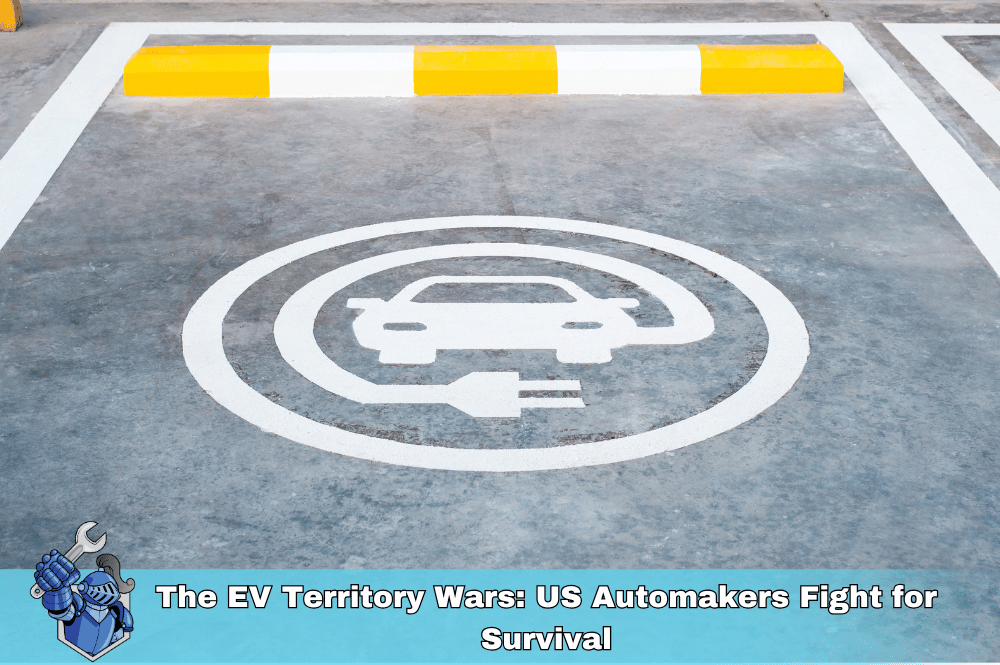
 Drive Away Richer? Credit Card Secrets for Smart Car Buying
Drive Away Richer? Credit Card Secrets for Smart Car Buying Understanding Car Leasing: A Complete Guide for First-Timers
Understanding Car Leasing: A Complete Guide for First-Timers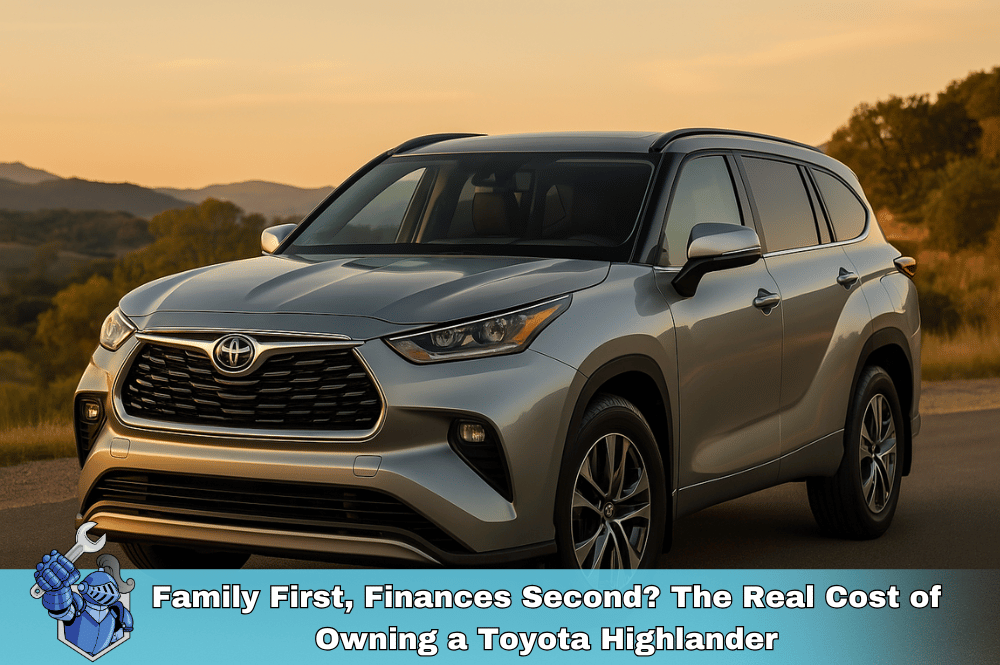 Family First, Finances Second? The Real Cost of Owning a Toyota Highlander
Family First, Finances Second? The Real Cost of Owning a Toyota Highlander The Crypto Long Game: Proven Strategies for Building Generational Wealth
The Crypto Long Game: Proven Strategies for Building Generational Wealth Living with a Legend: The Hidden Costs of Dodge Challenger Hellcat Ownership
Living with a Legend: The Hidden Costs of Dodge Challenger Hellcat Ownership Beyond Self-Driving: OpenAI and the Next Generation of Automotive Intelligence
Beyond Self-Driving: OpenAI and the Next Generation of Automotive Intelligence Blockchain Basics: The Technology Behind Cryptocurrencies
Blockchain Basics: The Technology Behind Cryptocurrencies New vs. Used: A Financial Showdown for Your Next Vehicle
New vs. Used: A Financial Showdown for Your Next Vehicle Depreciation Demystified: Planning for Your Car’s Future Value
Depreciation Demystified: Planning for Your Car’s Future Value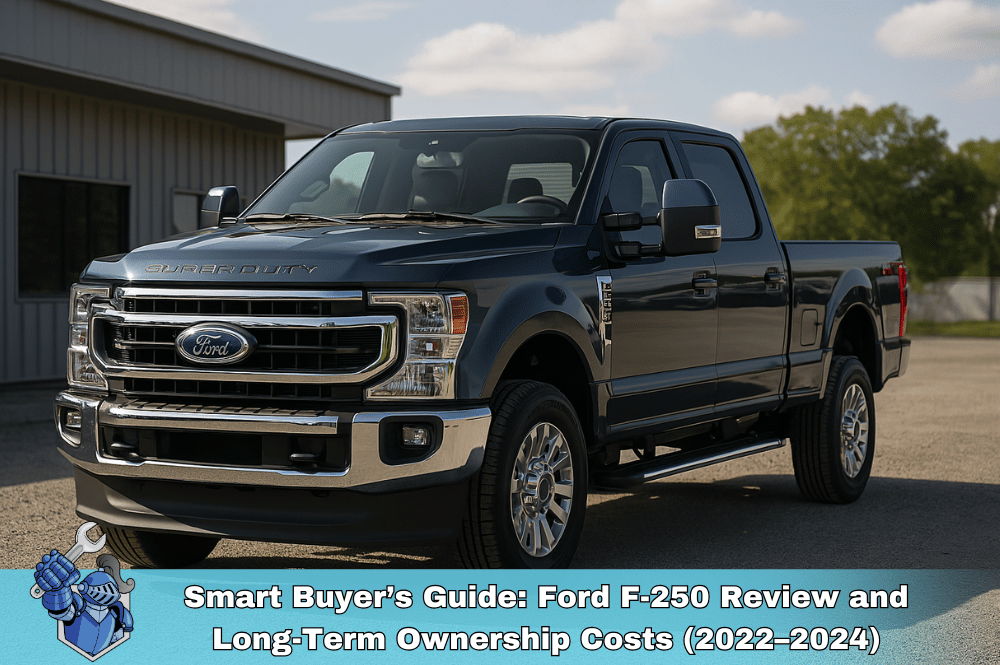 Smart Buyer’s Guide: Ford F-250 Review and Long-Term Ownership Costs (2022–2024)
Smart Buyer’s Guide: Ford F-250 Review and Long-Term Ownership Costs (2022–2024) DIY Danger? The Financial Risks of Handling Car Repairs Yourself
DIY Danger? The Financial Risks of Handling Car Repairs Yourself The Downtime Trap: How Car Repairs Can Cost You More Than Just the Bill
The Downtime Trap: How Car Repairs Can Cost You More Than Just the Bill Tech Troubles Ahead? The Rising Costs of Modern Vehicle Repairs
Tech Troubles Ahead? The Rising Costs of Modern Vehicle Repairs Drive Smart, Save Smarter: Your Guide to Budgeting for Car Care
Drive Smart, Save Smarter: Your Guide to Budgeting for Car Care Don’t Let Tariffs Hike Your Bills: The Smart Way an Extended Warranty Saves You on Car Repairs
Don’t Let Tariffs Hike Your Bills: The Smart Way an Extended Warranty Saves You on Car Repairs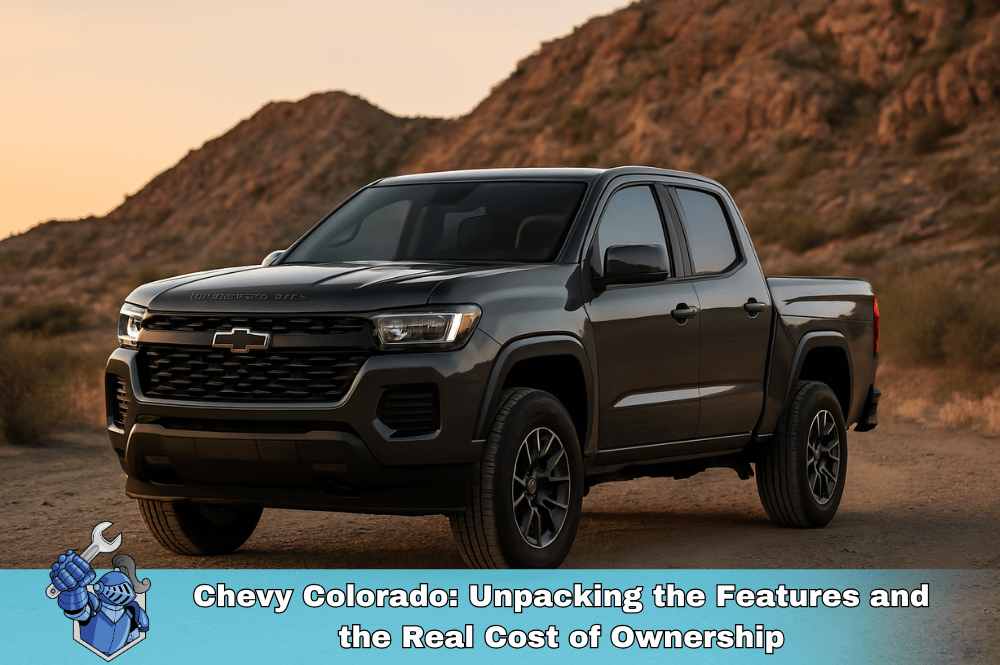 Chevy Colorado: Unpacking the Features and the Real Cost of Ownership
Chevy Colorado: Unpacking the Features and the Real Cost of Ownership Safe Kids: Your Comprehensive Guide to Child Car Seat Installation Tips and Guidelines
Safe Kids: Your Comprehensive Guide to Child Car Seat Installation Tips and Guidelines Unlock Better Opportunities: Your Guide to Understanding and Improving Your Credit Score
Unlock Better Opportunities: Your Guide to Understanding and Improving Your Credit Score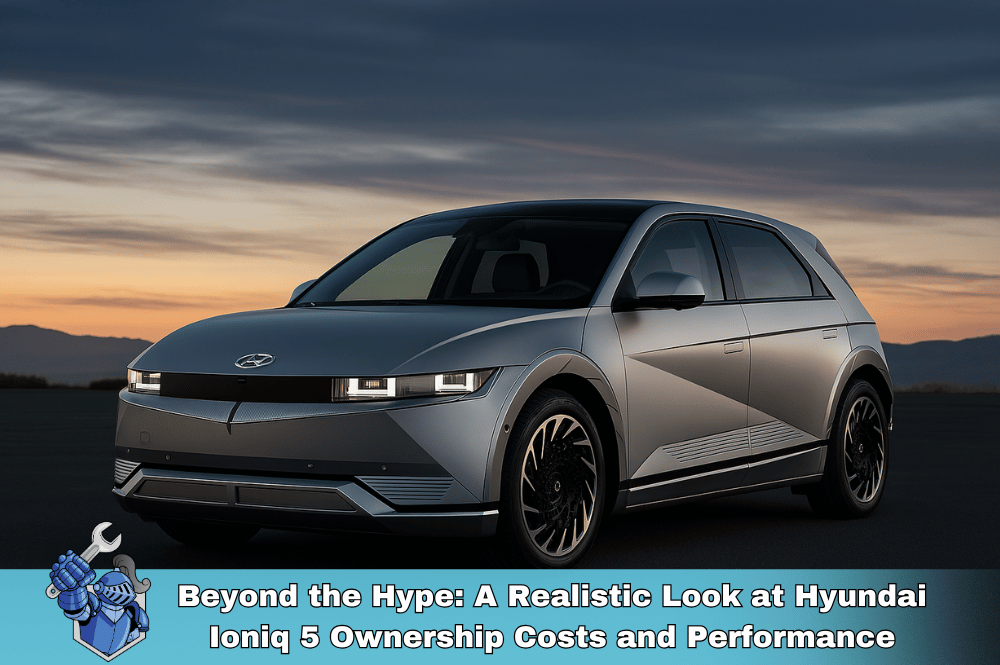 Beyond the Hype: A Realistic Look at Hyundai Ioniq 5 Ownership Costs and Performance
Beyond the Hype: A Realistic Look at Hyundai Ioniq 5 Ownership Costs and Performance Bitcoin vs. Cash: A Head-to-Head Comparison of Features
Bitcoin vs. Cash: A Head-to-Head Comparison of Features Decoding Your Wallet: The Benefits of Using Cash and Credit Wisely
Decoding Your Wallet: The Benefits of Using Cash and Credit Wisely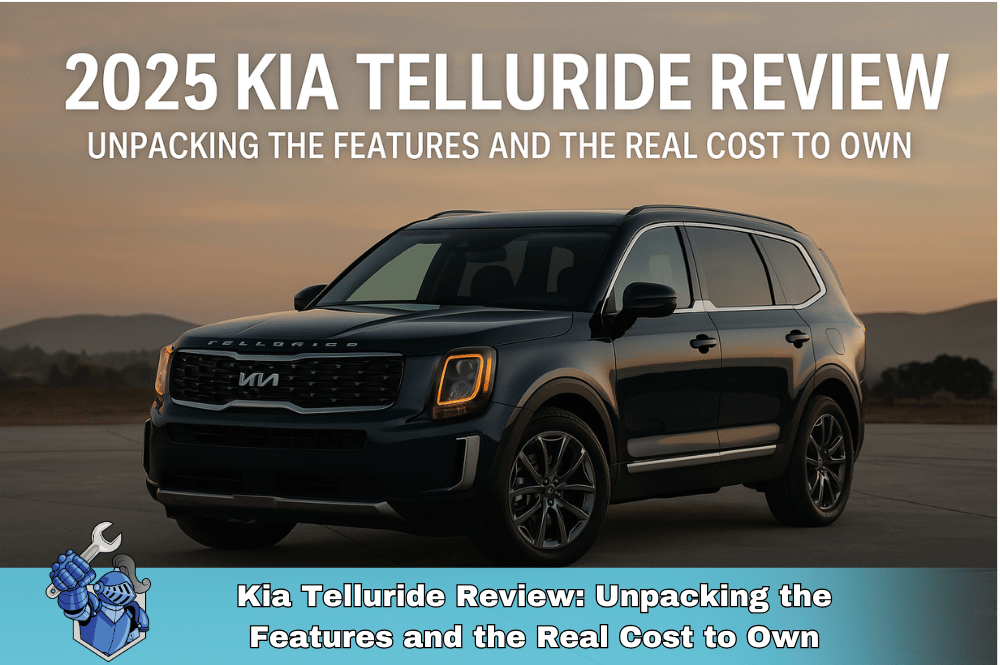 Kia Telluride Review: Unpacking the Features and the Real Cost to Own
Kia Telluride Review: Unpacking the Features and the Real Cost to Own NobleQuote: Best Auto Protection, Not Just the Oldest
NobleQuote: Best Auto Protection, Not Just the Oldest What is a Home Warranty and Do You Need One?
What is a Home Warranty and Do You Need One? Recession-Proof Your Ride: Why an Extended Car Warranty Makes Sense Now
Recession-Proof Your Ride: Why an Extended Car Warranty Makes Sense Now RV Road Trip Ready: Secure Your Adventures with Extended Warranty Coverage
RV Road Trip Ready: Secure Your Adventures with Extended Warranty Coverage Stop Paying for Potholes: The Smart Way to Protect Your Wheels and Tires
Stop Paying for Potholes: The Smart Way to Protect Your Wheels and Tires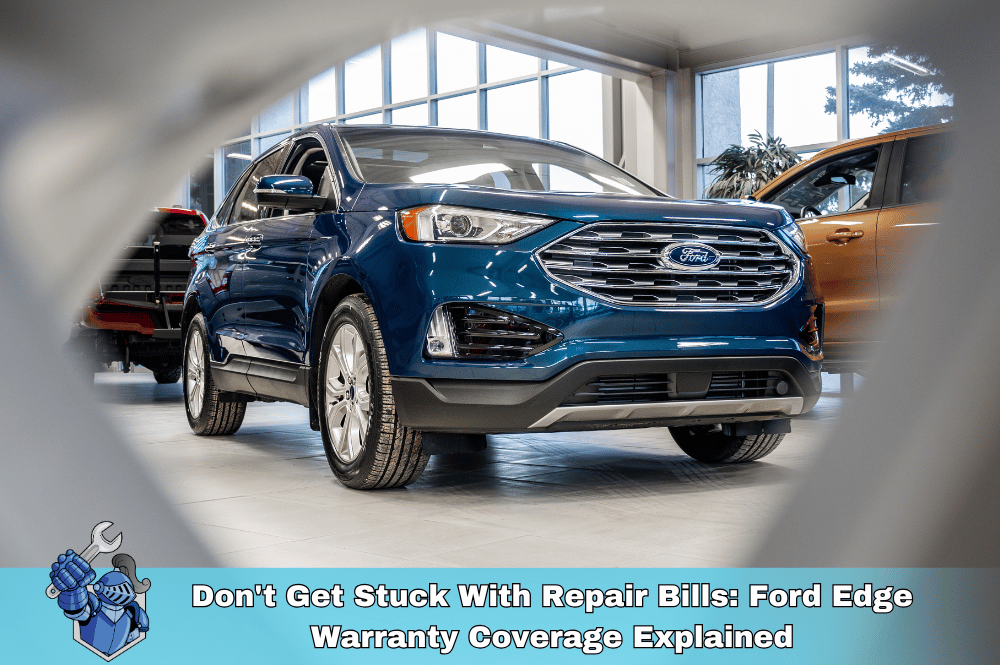 Don’t Get Stuck With Repair Bills: Ford Edge Warranty Coverage Explained
Don’t Get Stuck With Repair Bills: Ford Edge Warranty Coverage Explained Navigating the Online Vehicle Marketplace: Your Comprehensive Guide to Finding the Perfect Car or Truck
Navigating the Online Vehicle Marketplace: Your Comprehensive Guide to Finding the Perfect Car or Truck Maximize Your Savings: Understanding Your Vehicle Service Contract Deductible Options
Maximize Your Savings: Understanding Your Vehicle Service Contract Deductible Options Vehicle Service Contracts for SUVs and Trucks: Protecting Your Investment
Vehicle Service Contracts for SUVs and Trucks: Protecting Your Investment What to Do If Your Vehicle Service Contract Claim Is Denied
What to Do If Your Vehicle Service Contract Claim Is Denied What Happens to My Vehicle Service Contract If I Sell My Car?
What Happens to My Vehicle Service Contract If I Sell My Car? Extended Car Warranty with Active Factory Coverage: Smart Move or Waste of Money?
Extended Car Warranty with Active Factory Coverage: Smart Move or Waste of Money?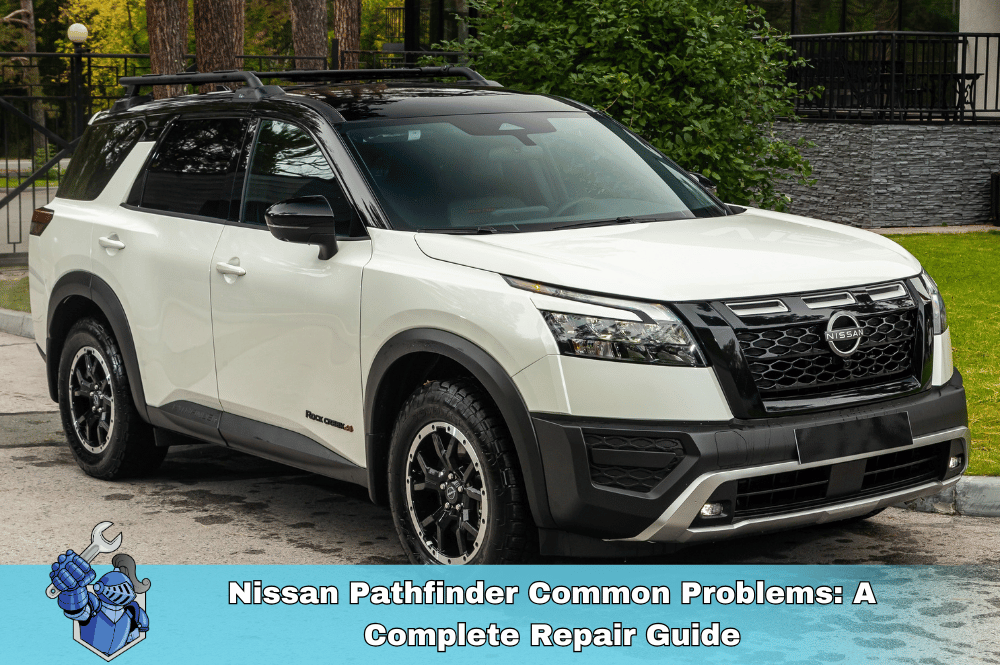 Nissan Pathfinder Common Problems: A Complete Repair Guide
Nissan Pathfinder Common Problems: A Complete Repair Guide DIY Oil Change: Do It Better Than the Pros (and Save Money!)
DIY Oil Change: Do It Better Than the Pros (and Save Money!) Keeping vs. Selling: Weighing Your Car Options & the Value of an Extended Car Warranty
Keeping vs. Selling: Weighing Your Car Options & the Value of an Extended Car Warranty Beyond Coverage: How Extended Warranties Can Expedite Your Car Repairs Amid Supply Chain Challenges
Beyond Coverage: How Extended Warranties Can Expedite Your Car Repairs Amid Supply Chain Challenges Protecting Your Ride Like Jalen Protects the Pocket: Cars, Eagles, and Smart Investments
Protecting Your Ride Like Jalen Protects the Pocket: Cars, Eagles, and Smart Investments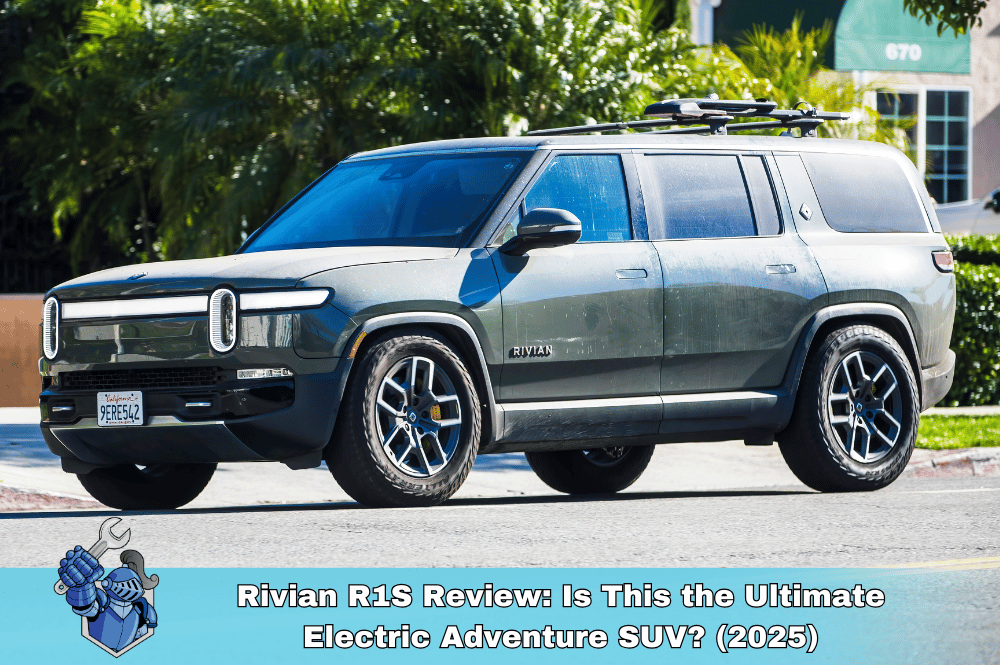 Rivian R1S Review: Is This the Ultimate Electric Adventure SUV? (2025)
Rivian R1S Review: Is This the Ultimate Electric Adventure SUV? (2025)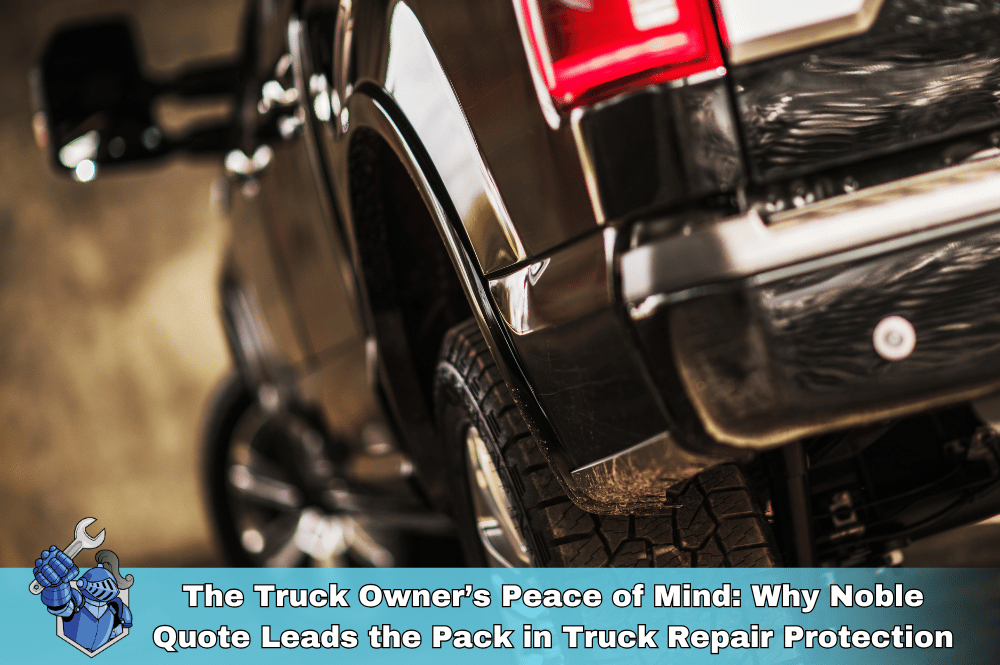 The Truck Owner’s Peace of Mind: Why Noble Quote Leads the Pack in Truck Repair Protection
The Truck Owner’s Peace of Mind: Why Noble Quote Leads the Pack in Truck Repair Protection Noble Quote: Driving with Confidence, Protected from Unexpected Repairs
Noble Quote: Driving with Confidence, Protected from Unexpected Repairs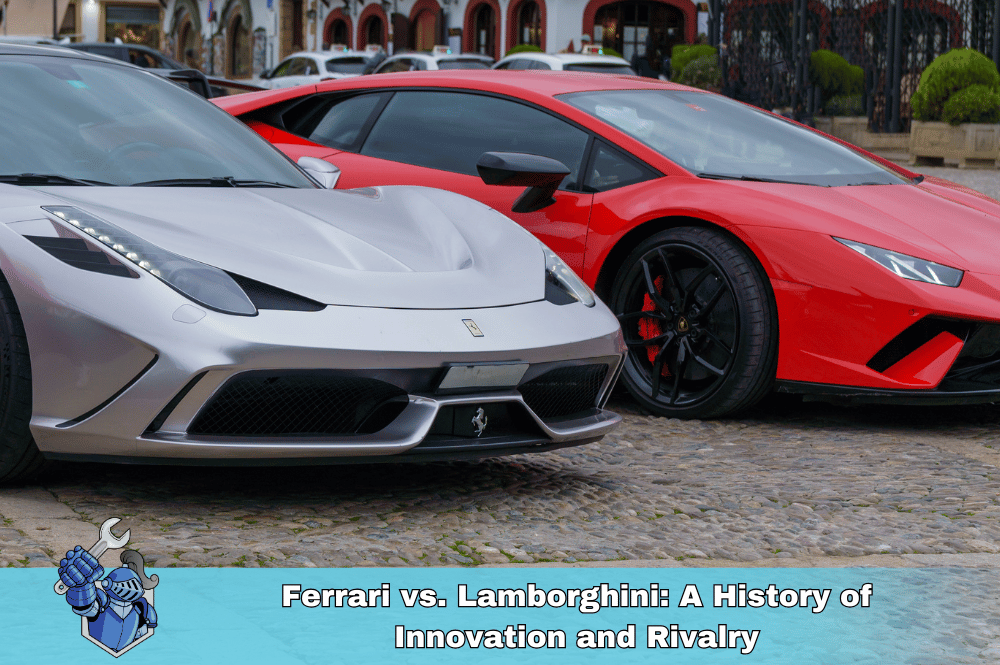 Ferrari vs. Lamborghini: A History of Innovation and Rivalry
Ferrari vs. Lamborghini: A History of Innovation and Rivalry Porsche GT3: Beyond the Numbers – The Soul-Stirring GT3 Experience
Porsche GT3: Beyond the Numbers – The Soul-Stirring GT3 Experience Kansas City Chiefs Players: You Won’t Believe What They’re Driving!
Kansas City Chiefs Players: You Won’t Believe What They’re Driving!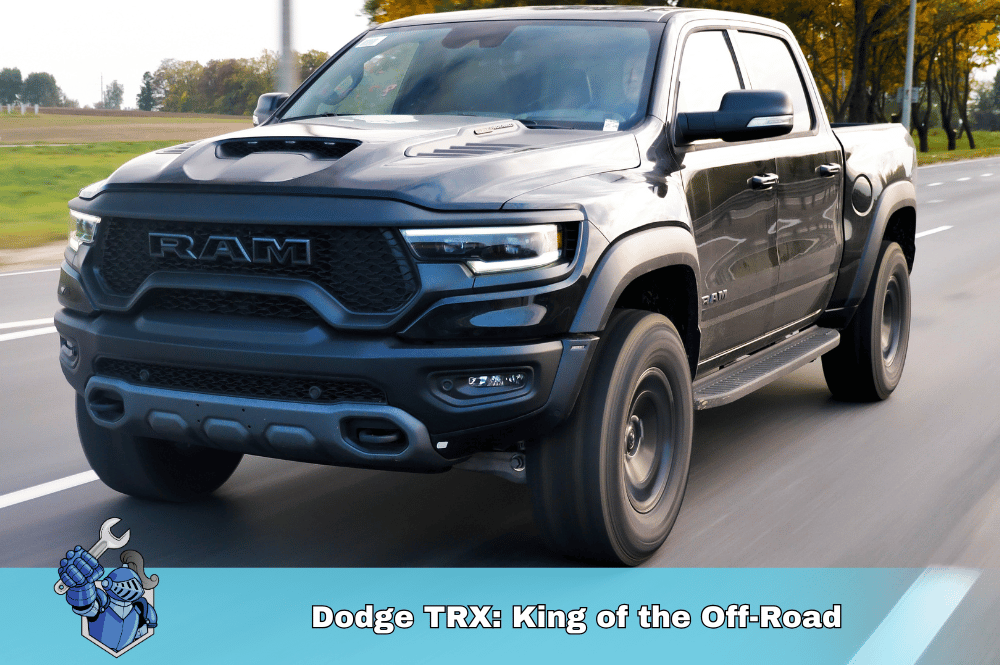 Dodge TRX: King of the Off-Road
Dodge TRX: King of the Off-Road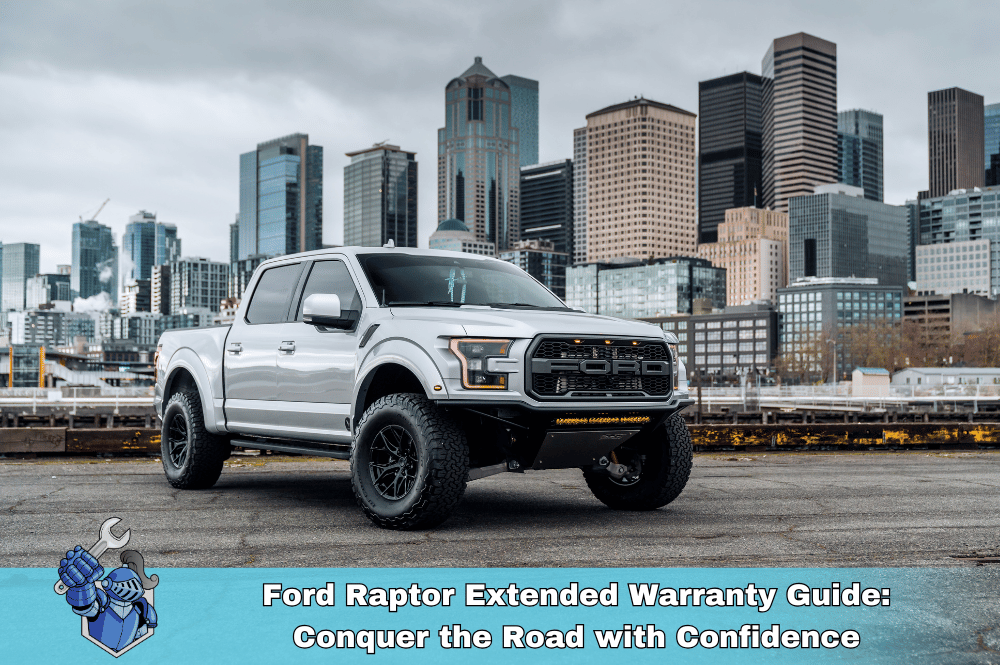 Ford Raptor Extended Warranty Guide: Conquer the Road with Confidence
Ford Raptor Extended Warranty Guide: Conquer the Road with Confidence Subaru Extended Warranty: Your Ultimate Guide
Subaru Extended Warranty: Your Ultimate Guide Protect Your Car & the Planet: Introducing NobleQuote's Green Choice Program
Protect Your Car & the Planet: Introducing NobleQuote's Green Choice Program Mazda Extended Warranty: Your Comprehensive Guide
Mazda Extended Warranty: Your Comprehensive Guide The Most Common Car Breakdowns of 2025 (And How to Avoid Them)
The Most Common Car Breakdowns of 2025 (And How to Avoid Them) Supercar Dreams on a Budget: The Most Affordable Exotics for First-Time Buyers
Supercar Dreams on a Budget: The Most Affordable Exotics for First-Time Buyers Porsche Cayenne Engine Problems: What to Watch For
Porsche Cayenne Engine Problems: What to Watch For The Future of Racing: Electric Cars, Autonomous Vehicles, and Beyond
The Future of Racing: Electric Cars, Autonomous Vehicles, and Beyond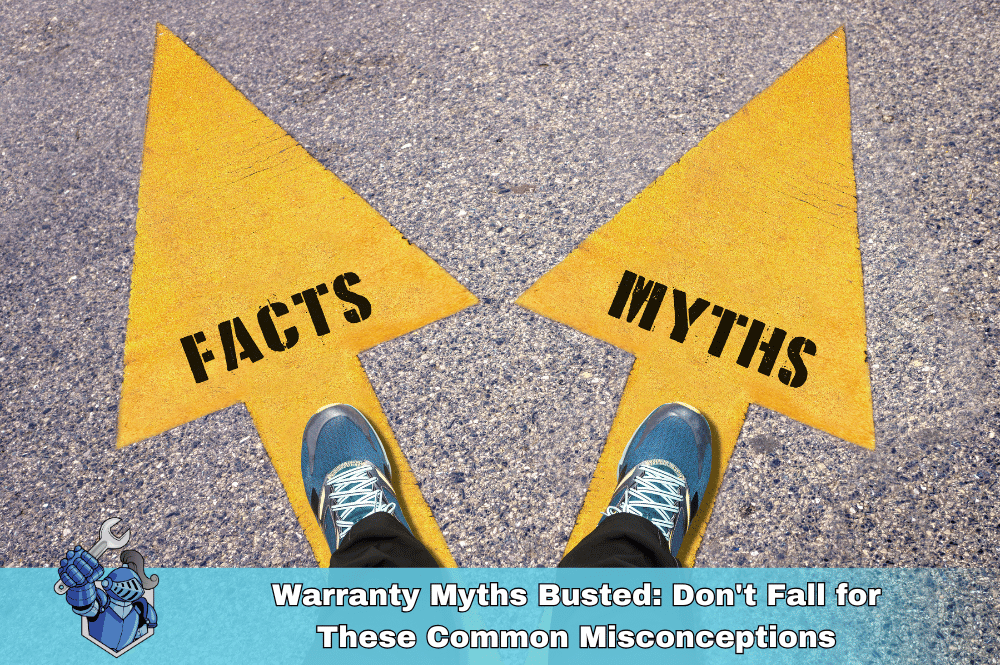 Warranty Myths Busted: Don't Fall for These Common Misconceptions
Warranty Myths Busted: Don't Fall for These Common Misconceptions We've Moved! Noble Quote's New Home at the Lake of the Ozarks
We've Moved! Noble Quote's New Home at the Lake of the Ozarks The "New Car Smell" Doesn't Last Forever: Protecting Your Investment Long-Term
The "New Car Smell" Doesn't Last Forever: Protecting Your Investment Long-Term Forza: The Perfect Blend of Simulation and Arcade Fun
Forza: The Perfect Blend of Simulation and Arcade Fun 5 Car Problems That’ll Make You Wish You Had an Extended Warranty
5 Car Problems That’ll Make You Wish You Had an Extended Warranty If NASCAR Had Car Warranties: The Pit Stop Chaos You’d See
If NASCAR Had Car Warranties: The Pit Stop Chaos You’d See Beyond F1: Exploring the World's Most Extreme Racing Series
Beyond F1: Exploring the World's Most Extreme Racing Series The Greatest NASCAR Rivalries of All Time: On-Track Battles and Off-Track Drama
The Greatest NASCAR Rivalries of All Time: On-Track Battles and Off-Track Drama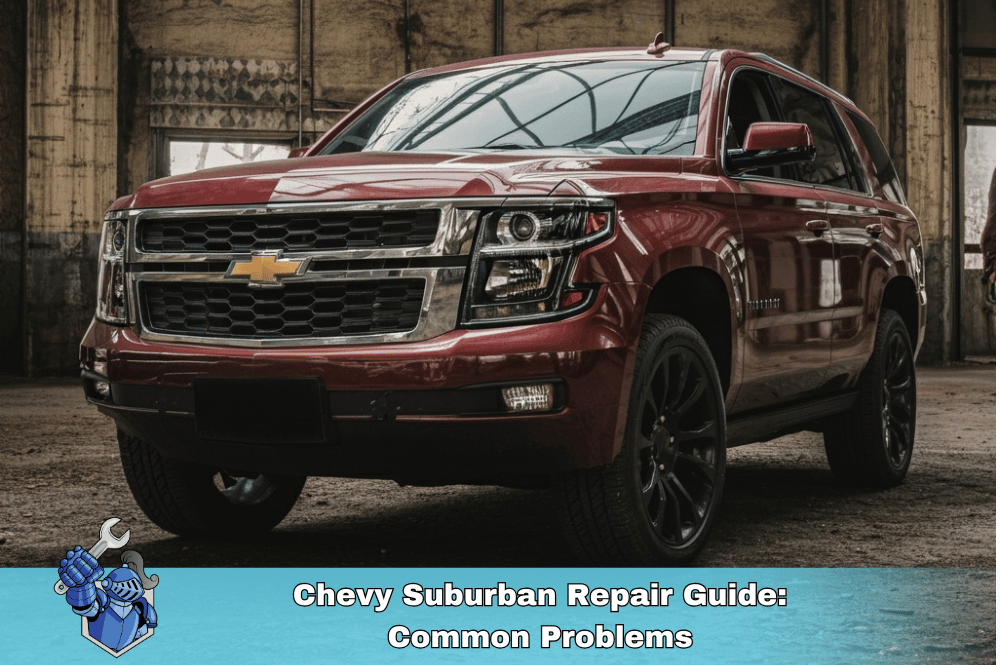 Chevy Suburban Repair Guide: Common Problems
Chevy Suburban Repair Guide: Common Problems Cupid's Got Horsepower: Rev Up Your Valentine's Day!
Cupid's Got Horsepower: Rev Up Your Valentine's Day! 10 Things You Didn't Know About James Bond’s Aston Martin DB5
10 Things You Didn't Know About James Bond’s Aston Martin DB5 Knight Rider vs. Back to the Future: A Battle of the 80s Icons
Knight Rider vs. Back to the Future: A Battle of the 80s Icons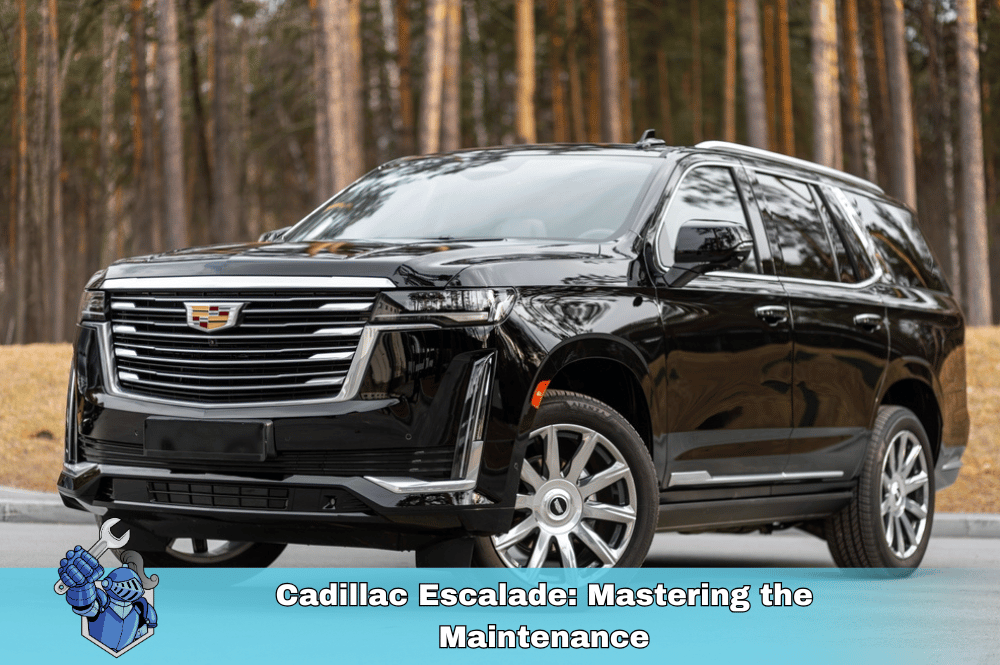 Cadillac Escalade: Mastering the Maintenance
Cadillac Escalade: Mastering the Maintenance Noble Quote vs. Omega Auto Care: Which Auto Warranty Is Right for You?
Noble Quote vs. Omega Auto Care: Which Auto Warranty Is Right for You? Charging Your Peace of Mind: Using a Credit Card to Buy a Car Warranty
Charging Your Peace of Mind: Using a Credit Card to Buy a Car Warranty Best Extended Warranty for Your Ford: Noble Quote or Ford Protect?
Best Extended Warranty for Your Ford: Noble Quote or Ford Protect? Extended Warranty vs. Self-Insuring: Which Is Right for You?
Extended Warranty vs. Self-Insuring: Which Is Right for You? Don’t Buy a Honda Warranty Before Reading This! Noble Quote vs. HondaCare
Don’t Buy a Honda Warranty Before Reading This! Noble Quote vs. HondaCare Mercedes-Benz G-Class Review: On and Off-Road Performance, Features, and Price
Mercedes-Benz G-Class Review: On and Off-Road Performance, Features, and Price Avoid Costly Repairs: Noble Quote vs. Ox Car Care Warranties
Avoid Costly Repairs: Noble Quote vs. Ox Car Care Warranties Affordable Protection: Noble Quote vs. Autopom Warranty Pricing
Affordable Protection: Noble Quote vs. Autopom Warranty Pricing Top 5 Most Expensive Car Repairs Your Manufacturer Warranty WON'T Cover
Top 5 Most Expensive Car Repairs Your Manufacturer Warranty WON'T Cover CarMax MaxCare vs. Noble Quote: Extended Warranty Showdown
CarMax MaxCare vs. Noble Quote: Extended Warranty Showdown From Referrals to Reviews: Finding the Perfect Repair Shop for You
From Referrals to Reviews: Finding the Perfect Repair Shop for You Selling Your Soul for an Extended Car Warranty (And Why They Keep Calling)
Selling Your Soul for an Extended Car Warranty (And Why They Keep Calling) Speaking Car: How to Clearly Communicate with Your Mechanic
Speaking Car: How to Clearly Communicate with Your Mechanic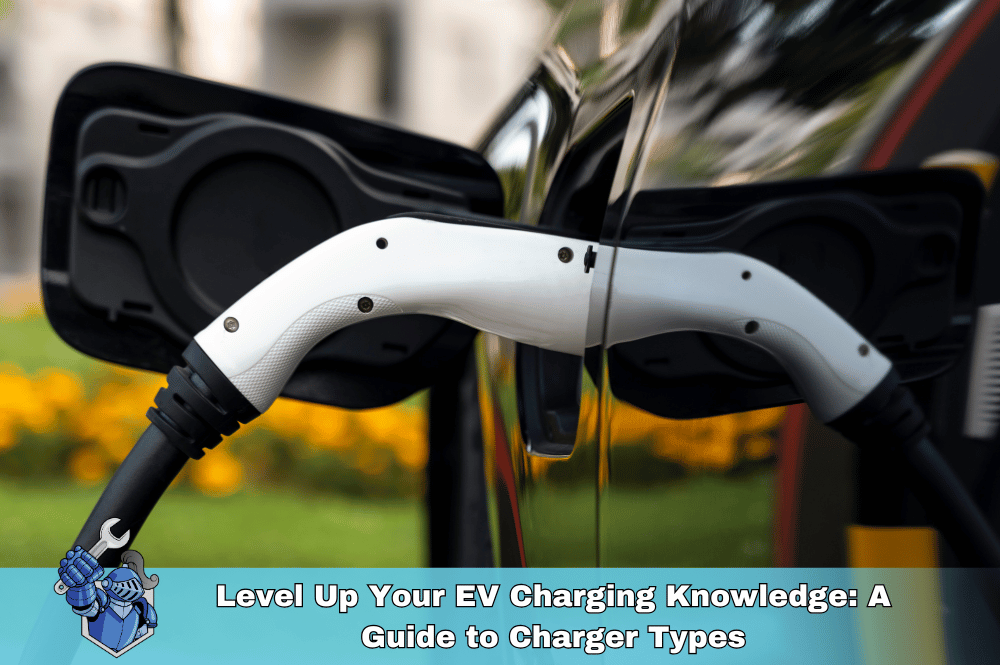 Level Up Your EV Charging Knowledge: A Guide to Charger Types
Level Up Your EV Charging Knowledge: A Guide to Charger Types Why Is My Car Heater Blowing Cold Air?
Why Is My Car Heater Blowing Cold Air? Bumper to Bumper Extended Warranty: What Does it Really Mean?
Bumper to Bumper Extended Warranty: What Does it Really Mean?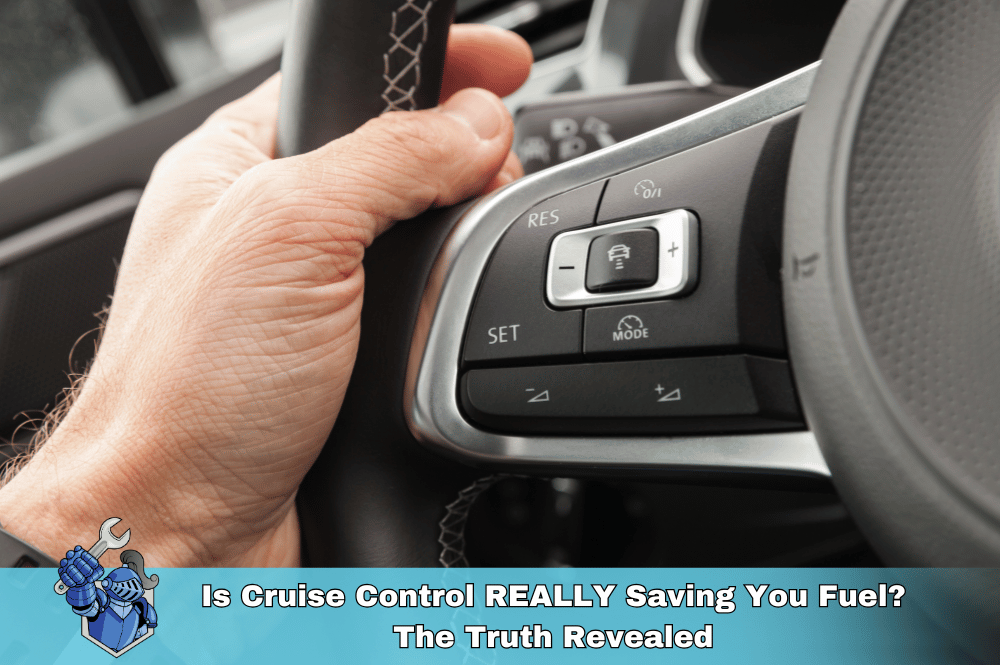 Is Cruise Control REALLY Saving You Fuel? The Truth Revealed
Is Cruise Control REALLY Saving You Fuel? The Truth Revealed Boost Your EV's Range: Tips and Tricks for Maximum Mileage
Boost Your EV's Range: Tips and Tricks for Maximum Mileage What to Do When the Dealership Makes Warranty Cancellation a Hassle
What to Do When the Dealership Makes Warranty Cancellation a Hassle Why Can’t I Include My Warranty in My Car Financing? Answers to Your Top Questions
Why Can’t I Include My Warranty in My Car Financing? Answers to Your Top Questions Car Safety Technology: How Advanced Driver-Assistance Systems (ADAS) Are Changing the Game (and Your Insurance Rates)
Car Safety Technology: How Advanced Driver-Assistance Systems (ADAS) Are Changing the Game (and Your Insurance Rates) Skip the Dealership: The Rise of Online Car Buying
Skip the Dealership: The Rise of Online Car Buying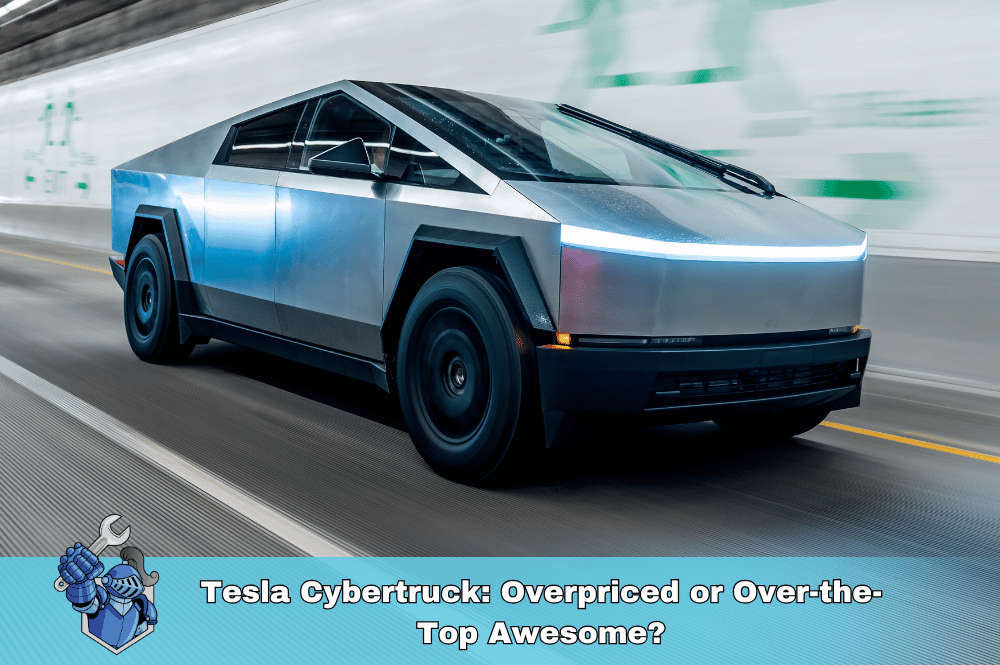 Tesla Cybertruck: Overpriced or Over-the-Top Awesome?
Tesla Cybertruck: Overpriced or Over-the-Top Awesome?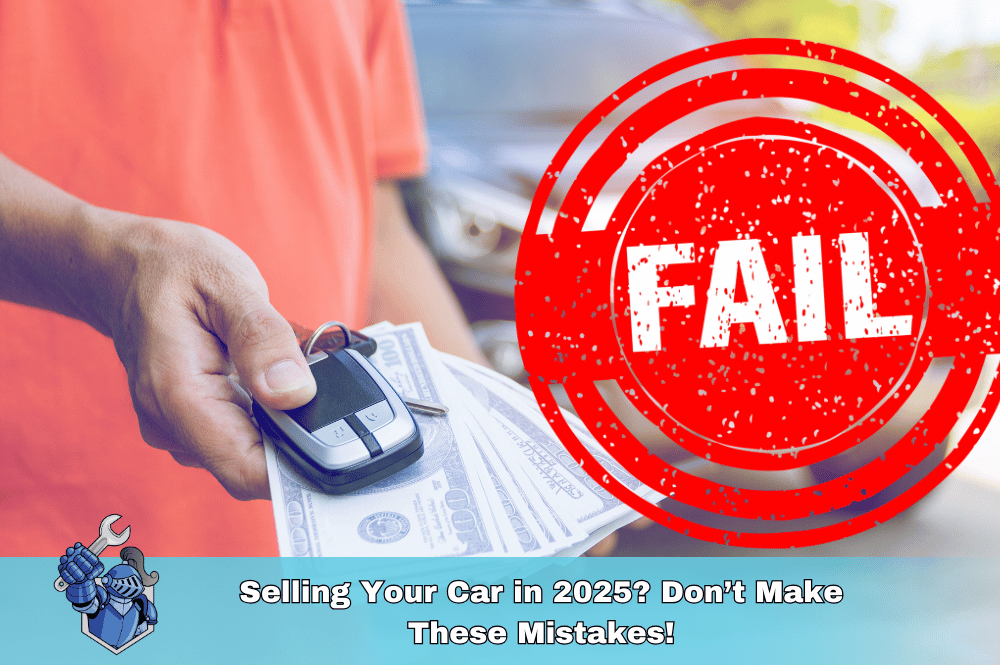 Selling Your Car in 2025? Don’t Make These Mistakes!
Selling Your Car in 2025? Don’t Make These Mistakes!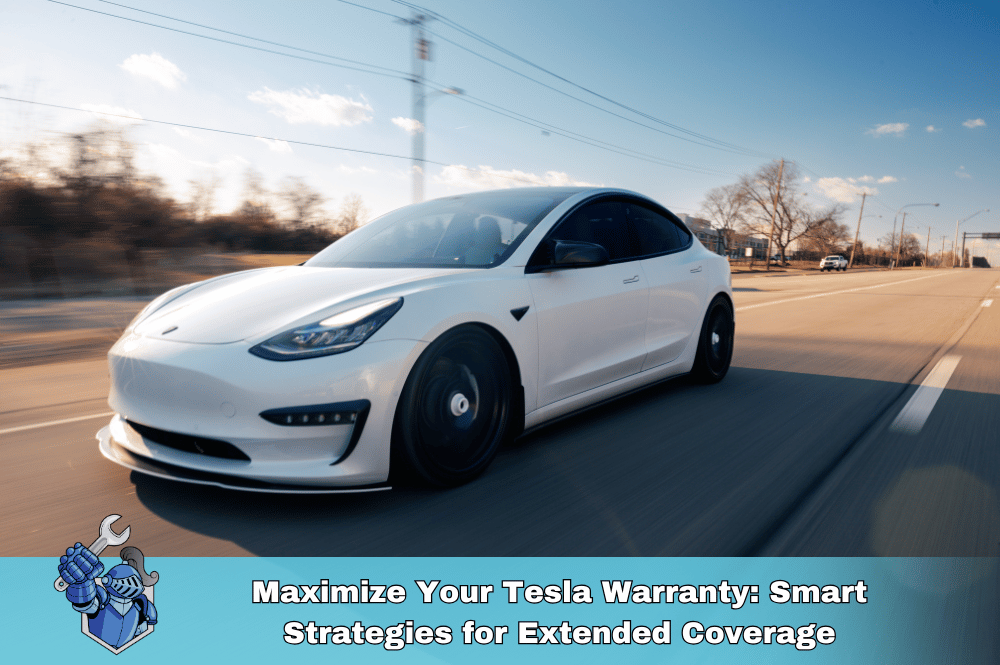 Maximize Your Tesla Warranty: Smart Strategies for Extended Coverage
Maximize Your Tesla Warranty: Smart Strategies for Extended Coverage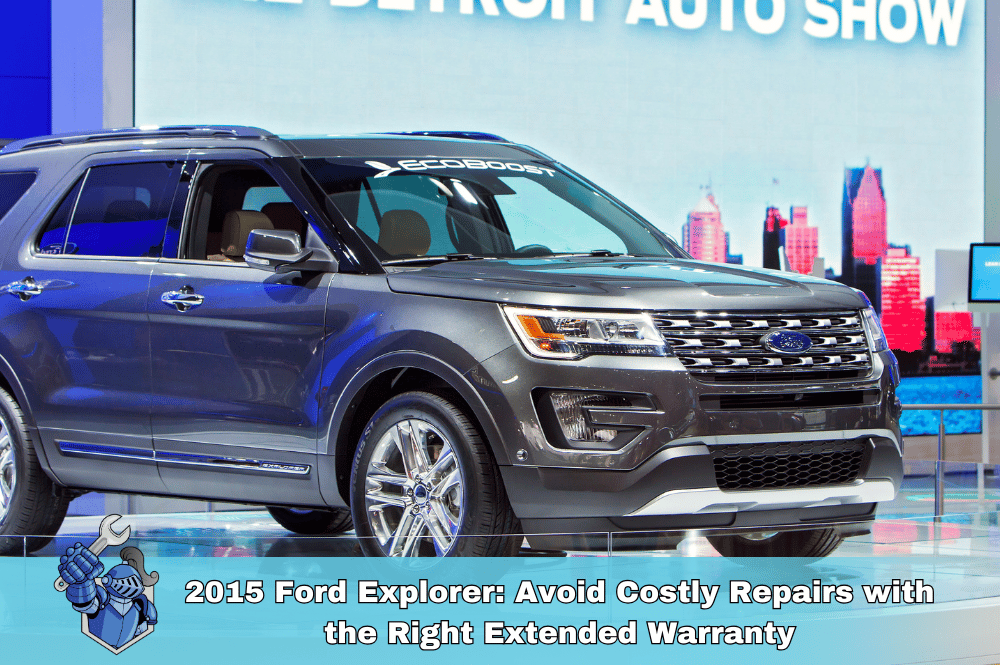 2015 Ford Explorer: Avoid Costly Repairs with the Right Extended Warranty
2015 Ford Explorer: Avoid Costly Repairs with the Right Extended Warranty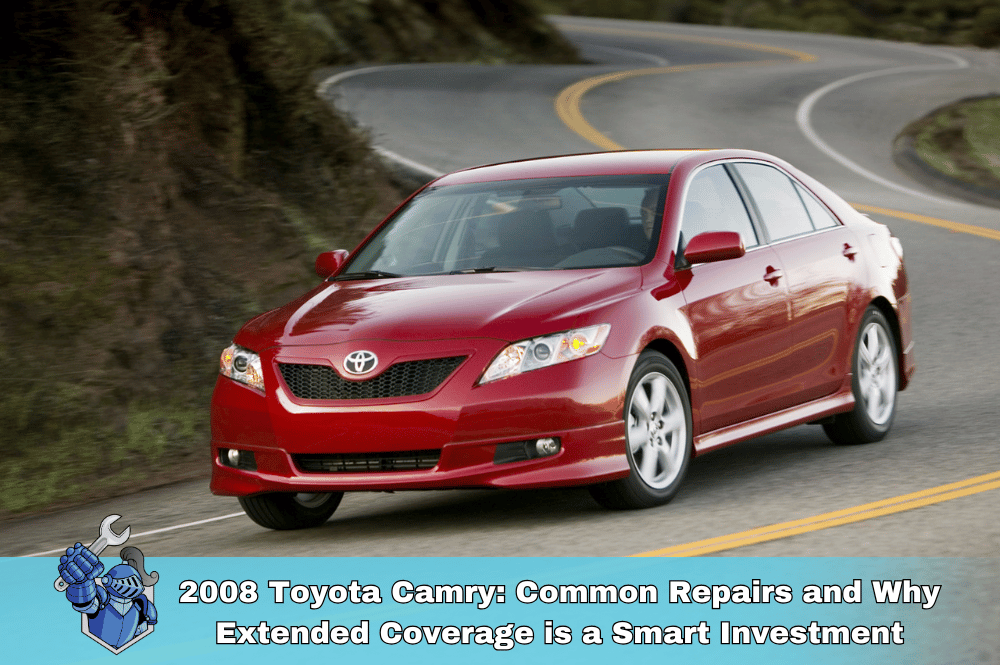 2008 Toyota Camry: Common Repairs and Why Extended Coverage is a Smart Investment
2008 Toyota Camry: Common Repairs and Why Extended Coverage is a Smart Investment Electric Vehicles 101: What You Need to Know Before Making the Switch
Electric Vehicles 101: What You Need to Know Before Making the Switch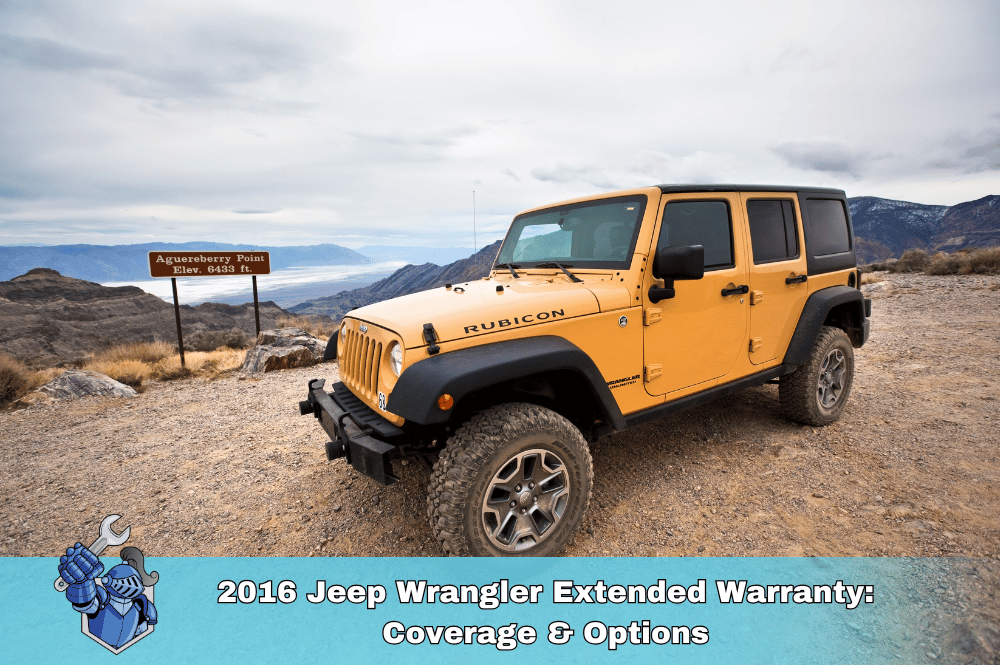 2016 Jeep Wrangler Extended Warranty: Coverage & Options
2016 Jeep Wrangler Extended Warranty: Coverage & Options Save on Car Repairs: NobleQuote vs. Toco Extended Warranty Review
Save on Car Repairs: NobleQuote vs. Toco Extended Warranty Review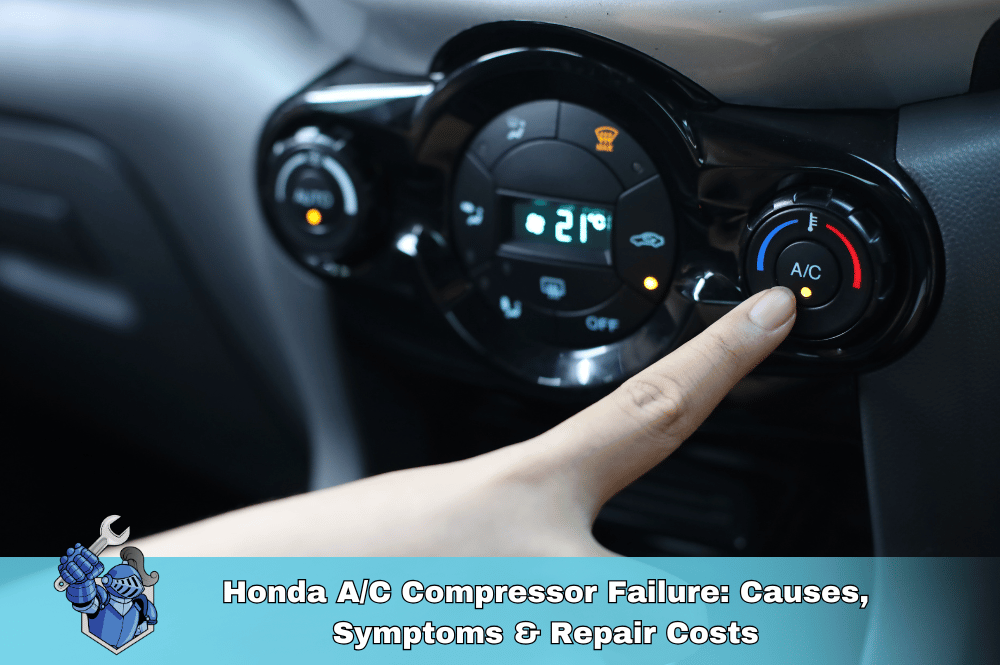 Honda A/C Compressor Failure: Causes, Symptoms & Repair Costs
Honda A/C Compressor Failure: Causes, Symptoms & Repair Costs 2015 Nissan Altima Warranty Expired? Get Extended Coverage Today!
2015 Nissan Altima Warranty Expired? Get Extended Coverage Today! Ford Power Steering Repair: Problems & Solutions
Ford Power Steering Repair: Problems & Solutions Car Scratches Driving You Crazy? 10 Steps to Fix Them Yourself
Car Scratches Driving You Crazy? 10 Steps to Fix Them Yourself Why Your Headlights Are Turning Yellow (And How to Prevent It)
Why Your Headlights Are Turning Yellow (And How to Prevent It)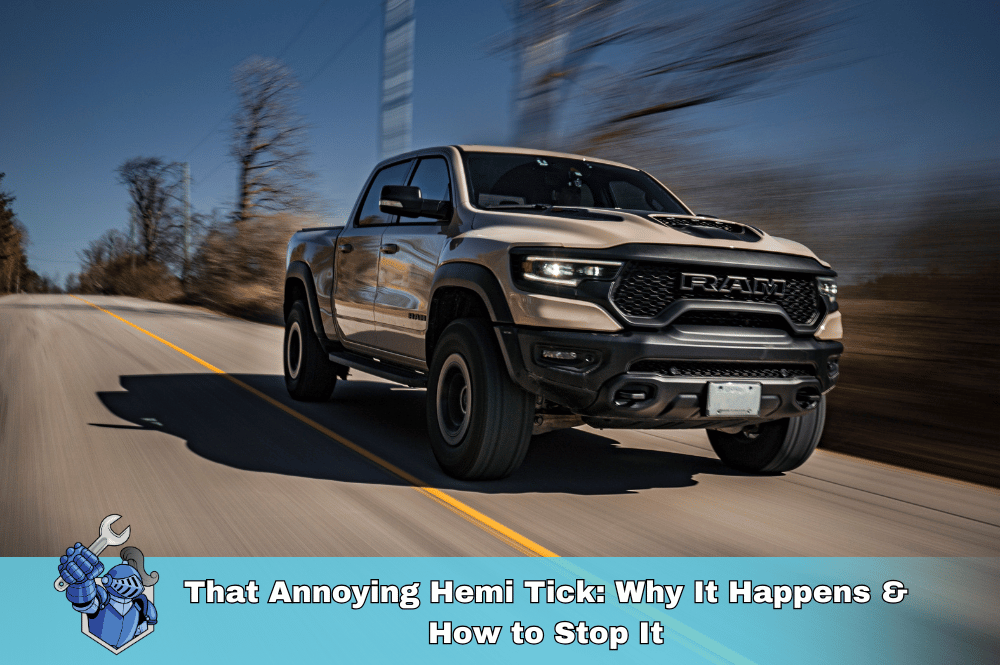 That Annoying Hemi Tick: Why It Happens & How to Stop It
That Annoying Hemi Tick: Why It Happens & How to Stop It Ford F-150: This Ain't Your Grandpa's Pickup!
Ford F-150: This Ain't Your Grandpa's Pickup! Zombie Apocalypse Survival Tip #1: Get an Extended Warranty (Brains Not Included)
Zombie Apocalypse Survival Tip #1: Get an Extended Warranty (Brains Not Included) 'Tis the Season to Be Jolly... and Protected: Why an Extended Warranty is the Gift That Keeps on Giving
'Tis the Season to Be Jolly... and Protected: Why an Extended Warranty is the Gift That Keeps on Giving The Car Repair Lottery: Are You Feeling Lucky?
The Car Repair Lottery: Are You Feeling Lucky? Extended Warranty Secrets: Unlocking Surprising Perks You Didn’t Know Existed!
Extended Warranty Secrets: Unlocking Surprising Perks You Didn’t Know Existed! Car Trouble? Your Insurance Might NOT Cover This!
Car Trouble? Your Insurance Might NOT Cover This!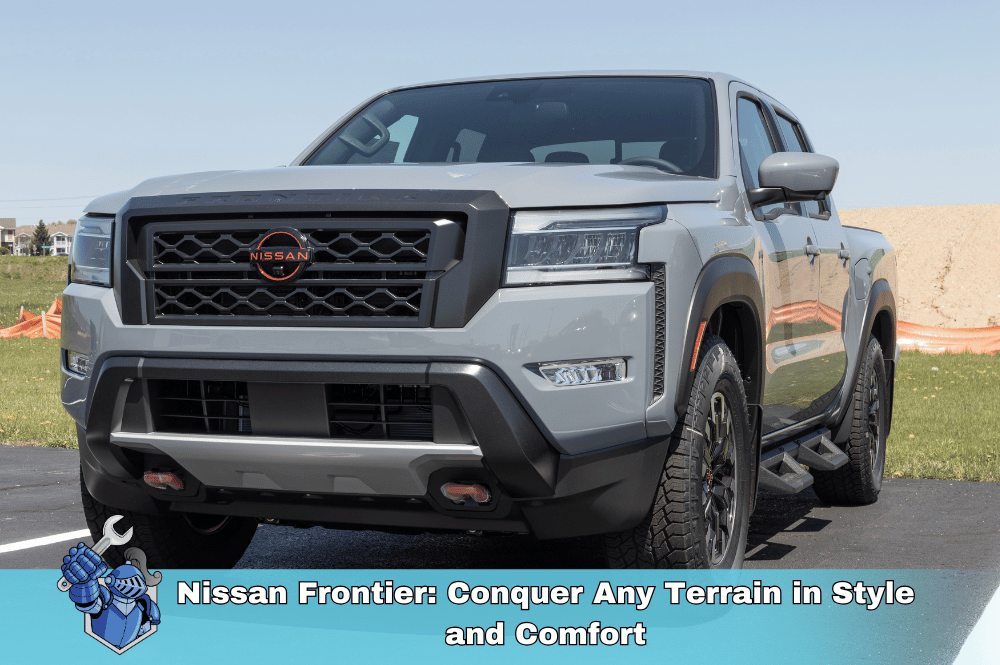 Nissan Frontier: Conquer Any Terrain in Style and Comfort
Nissan Frontier: Conquer Any Terrain in Style and Comfort Off-Roading vs. Overlanding: What’s the Difference?
Off-Roading vs. Overlanding: What’s the Difference? Should You Buy a Truck? The Ultimate Pros and Cons List
Should You Buy a Truck? The Ultimate Pros and Cons List Ford Bronco: A Legend Reborn – Explore its Wild History & Modern Muscle
Ford Bronco: A Legend Reborn – Explore its Wild History & Modern Muscle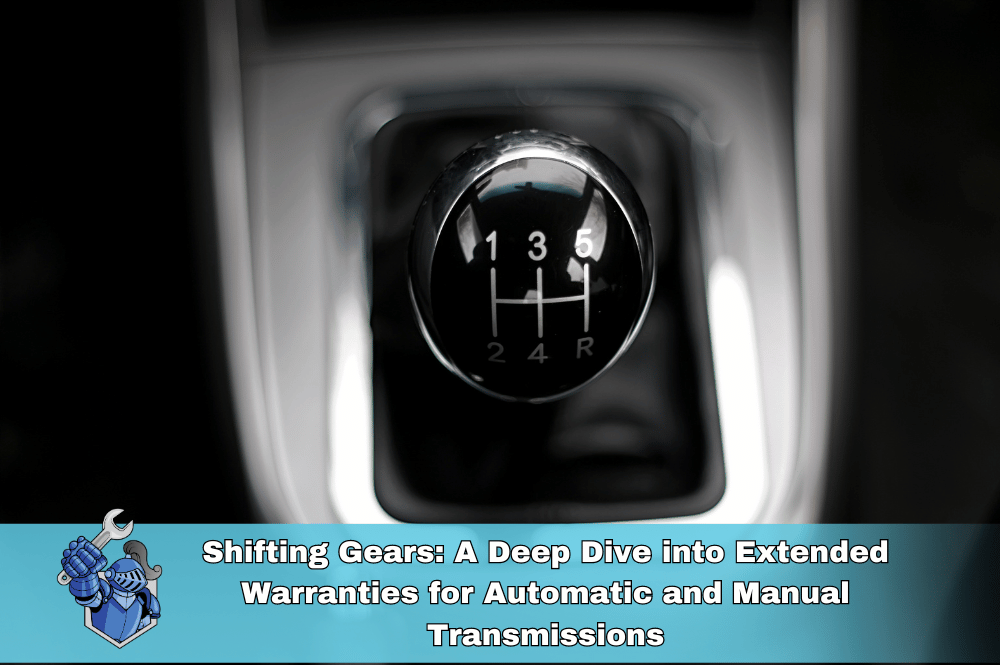 Shifting Gears: A Deep Dive into Extended Warranties for Automatic and Manual Transmissions
Shifting Gears: A Deep Dive into Extended Warranties for Automatic and Manual Transmissions Hope for the Warriors: Standing Strong for Our Veterans and Military Families
Hope for the Warriors: Standing Strong for Our Veterans and Military Families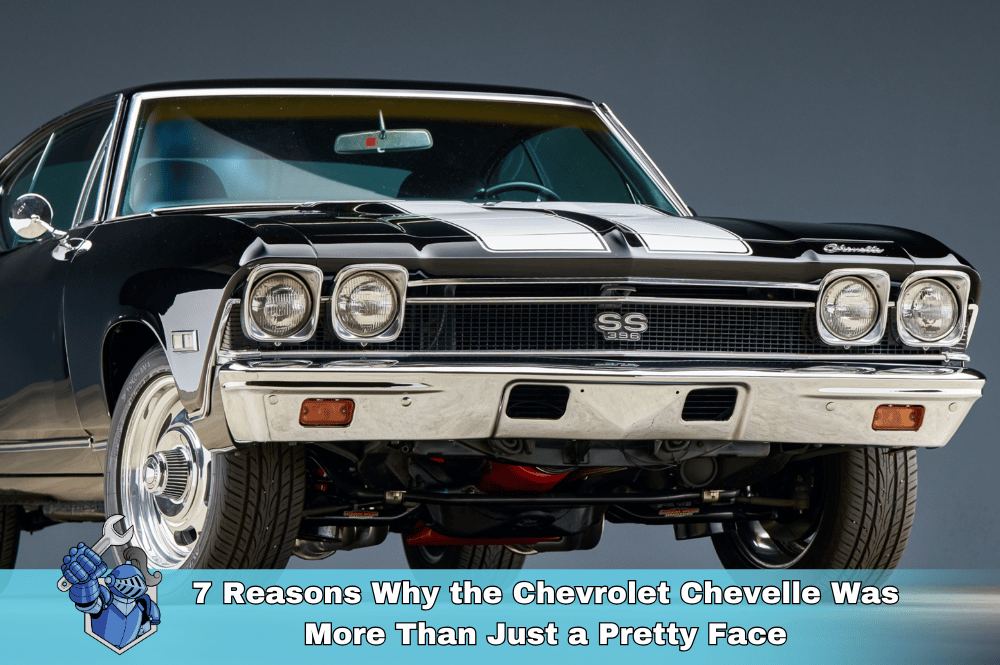 7 Reasons Why the Chevrolet Chevelle Was More Than Just a Pretty Face
7 Reasons Why the Chevrolet Chevelle Was More Than Just a Pretty Face Looking for the Perfect Gift for a Car Enthusiast? Try These 10 Puzzles
Looking for the Perfect Gift for a Car Enthusiast? Try These 10 Puzzles What is an ASE Certified Mechanic? (And Why Should You Care)
What is an ASE Certified Mechanic? (And Why Should You Care) Ford Mustang: A Guide to Popular Models & Years (1964-Present)
Ford Mustang: A Guide to Popular Models & Years (1964-Present)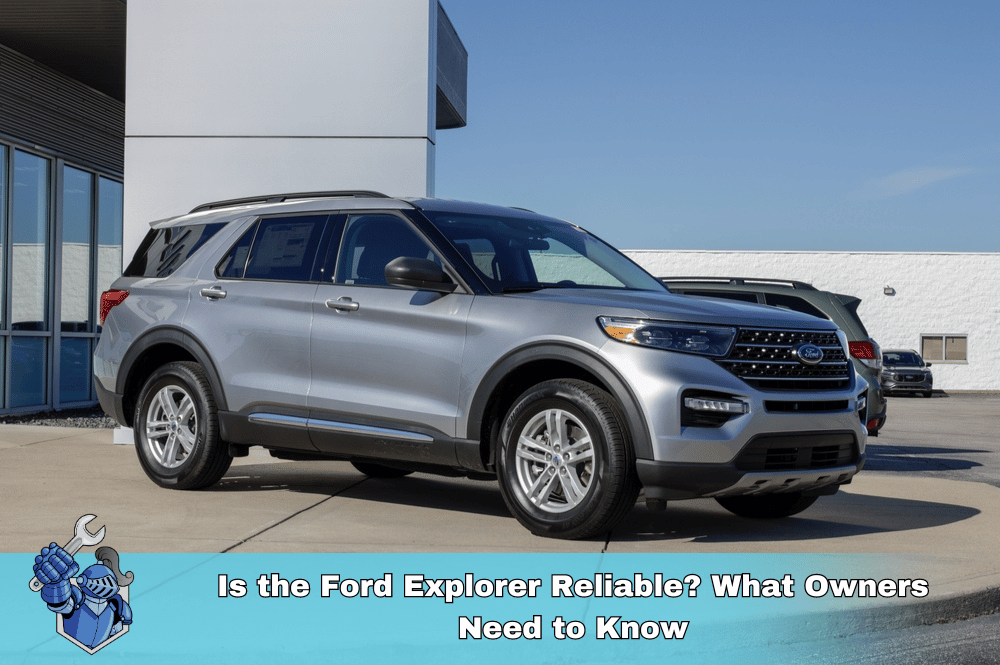 Is the Ford Explorer Reliable? What Owners Need to Know
Is the Ford Explorer Reliable? What Owners Need to Know Rules of the Road: Your Ultimate Guide to Safe Driving
Rules of the Road: Your Ultimate Guide to Safe Driving Exhaust Problems? Mufflers, Catalytic Converters, & Replacement Solutions
Exhaust Problems? Mufflers, Catalytic Converters, & Replacement Solutions The Ultimate New Driver's Guide: Everything You Need to Know to Hit the Road with Confidence
The Ultimate New Driver's Guide: Everything You Need to Know to Hit the Road with Confidence Revving Up the Excitement: Unveiling the Magic of Disney Pixar's 'Cars'
Revving Up the Excitement: Unveiling the Magic of Disney Pixar's 'Cars'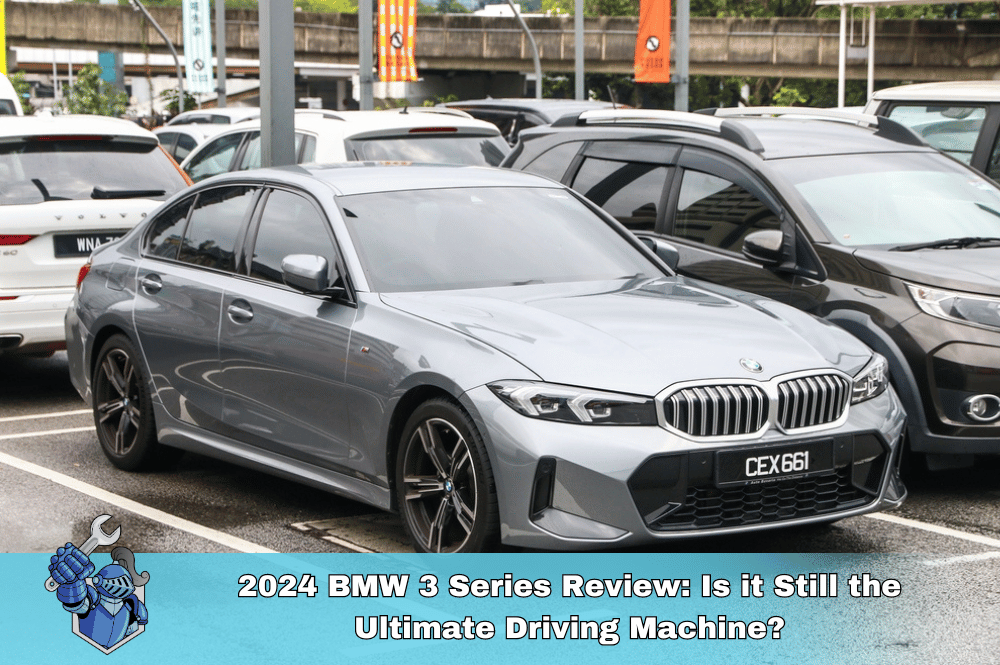 2024 BMW 3 Series Review: Is it Still the Ultimate Driving Machine?
2024 BMW 3 Series Review: Is it Still the Ultimate Driving Machine?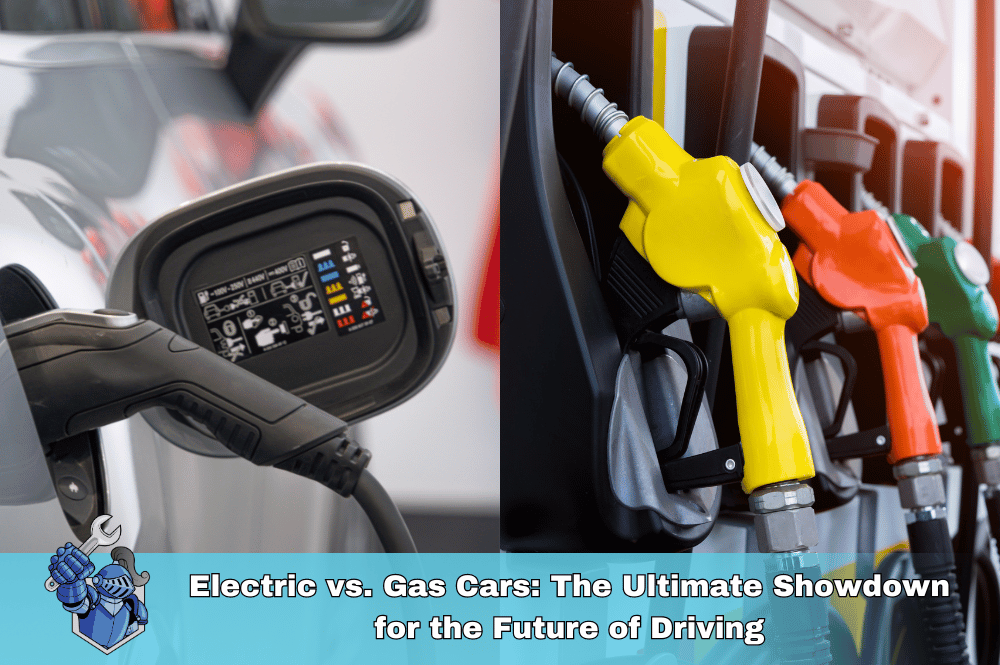 Electric vs. Gas Cars: The Ultimate Showdown for the Future of Driving
Electric vs. Gas Cars: The Ultimate Showdown for the Future of Driving Spotting and Stopping the Drip: Your Comprehensive Guide to Automotive Oil Leaks
Spotting and Stopping the Drip: Your Comprehensive Guide to Automotive Oil Leaks How Many Miles Can an Engine Really Last? The Definitive Guide
How Many Miles Can an Engine Really Last? The Definitive Guide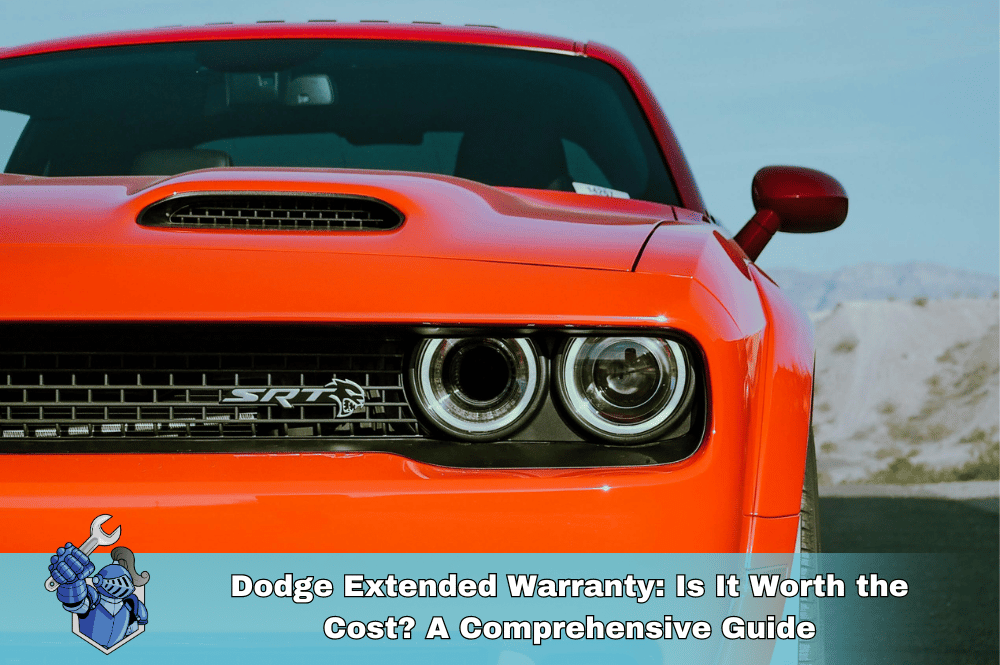 Dodge Extended Warranty: Is It Worth the Cost? A Comprehensive Guide
Dodge Extended Warranty: Is It Worth the Cost? A Comprehensive Guide The Ultimate Guide to Automotive Wraps: Everything You Need to Know
The Ultimate Guide to Automotive Wraps: Everything You Need to Know Dealer vs. Local Mechanic: Where Should You Take Your Car for Repairs?
Dealer vs. Local Mechanic: Where Should You Take Your Car for Repairs? The DIY Mechanic's Arsenal: Essential Tools for Basic Car Repairs
The DIY Mechanic's Arsenal: Essential Tools for Basic Car Repairs Stranded on the Sidelines: Your Essential Guide to Roadside Breakdowns & Staying Safe
Stranded on the Sidelines: Your Essential Guide to Roadside Breakdowns & Staying Safe The Ultimate Guide to Vehicle Airbags: Everything You Need to Know to Stay Safe
The Ultimate Guide to Vehicle Airbags: Everything You Need to Know to Stay Safe Toyota Tacoma: The Definitive Buyer’s Guide & In-Depth Review
Toyota Tacoma: The Definitive Buyer’s Guide & In-Depth Review How to Choose the Best First Car for Your Teen in 2024: A Parent's Guide
How to Choose the Best First Car for Your Teen in 2024: A Parent's Guide Alternator Failing? Repair Costs, Symptoms, and Why You Need Coverage
Alternator Failing? Repair Costs, Symptoms, and Why You Need Coverage Subaru Outback Review: Everything You Need to Know About This Versatile SUV
Subaru Outback Review: Everything You Need to Know About This Versatile SUV 8 Essential Tips to Avoid Overpaying at the Auto Repair Shop
8 Essential Tips to Avoid Overpaying at the Auto Repair Shop Are Lift Kits Covered Under Your Truck’s Extended Warranty? Key Info for Lifted Trucks
Are Lift Kits Covered Under Your Truck’s Extended Warranty? Key Info for Lifted Trucks How to Replace Your Car Key Battery Tips Costs and More
How to Replace Your Car Key Battery Tips Costs and More Everything You Need to Know About Chevy Extended Warranties
Everything You Need to Know About Chevy Extended Warranties The Essential Guide to Car Maintenance: How to Keep Your Vehicle Running Smoothly
The Essential Guide to Car Maintenance: How to Keep Your Vehicle Running Smoothly Top 5 Reasons Your Transmission May Be Failing: Expert Tips and Solutions
Top 5 Reasons Your Transmission May Be Failing: Expert Tips and Solutions Supporting a Worthy Cause: NobleQuote's Partnership with Alex's Lemonade Stand Foundation
Supporting a Worthy Cause: NobleQuote's Partnership with Alex's Lemonade Stand Foundation Choosing the Right Brake Pads: A Complete Guide to Safety and Performance
Choosing the Right Brake Pads: A Complete Guide to Safety and Performance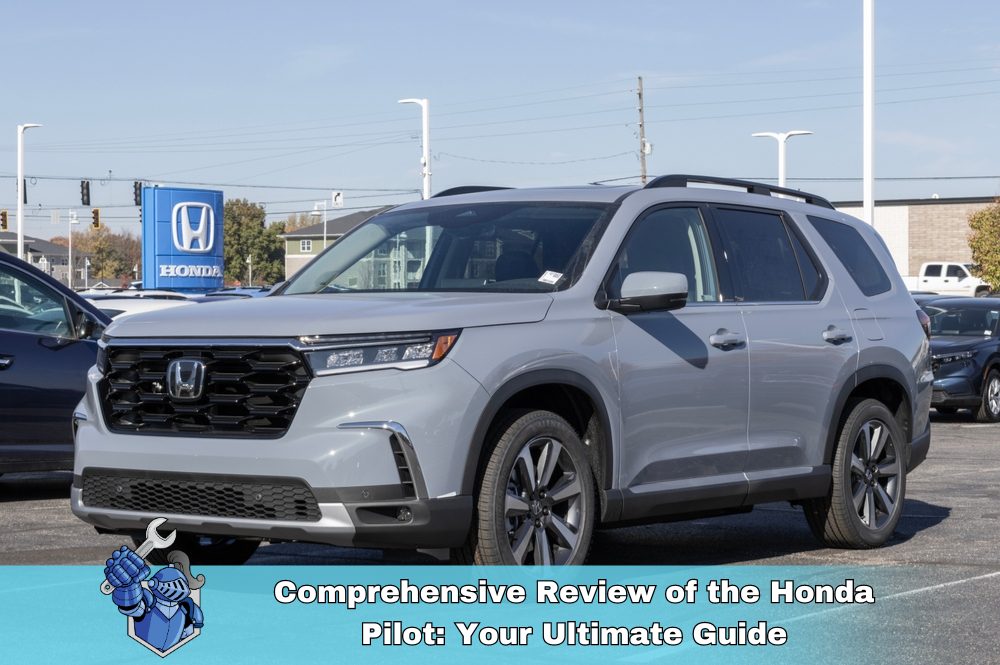 Comprehensive Review of the Honda Pilot: Your Ultimate Guide
Comprehensive Review of the Honda Pilot: Your Ultimate Guide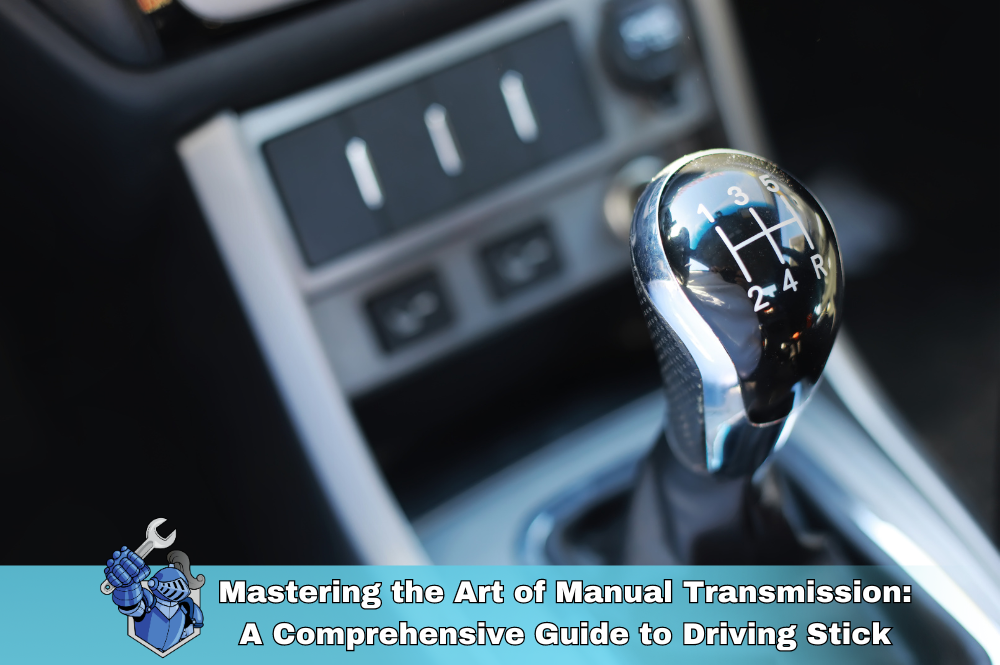 Mastering the Art of Manual Transmission: A Comprehensive Guide to Driving Stick
Mastering the Art of Manual Transmission: A Comprehensive Guide to Driving Stick Famous Actors Who Have a Need for Speed: Hollywood's Race Car Drivers
Famous Actors Who Have a Need for Speed: Hollywood's Race Car Drivers Top 10 Dashboard Warning Lights Every Driver Should Know
Top 10 Dashboard Warning Lights Every Driver Should Know The Ultimate Guide to Motor Oil: Types, Benefits, and How to Change It
The Ultimate Guide to Motor Oil: Types, Benefits, and How to Change It Top Reasons Your Car Radiator Might Fail and How to Prevent Costly Repairs
Top Reasons Your Car Radiator Might Fail and How to Prevent Costly Repairs Honda Maintenance 101: Budgeting for Unexpected Repairs & Routine Service
Honda Maintenance 101: Budgeting for Unexpected Repairs & Routine Service Understanding Car Starters: Common Issues, Repair Costs, and How to Protect Your Vehicle
Understanding Car Starters: Common Issues, Repair Costs, and How to Protect Your Vehicle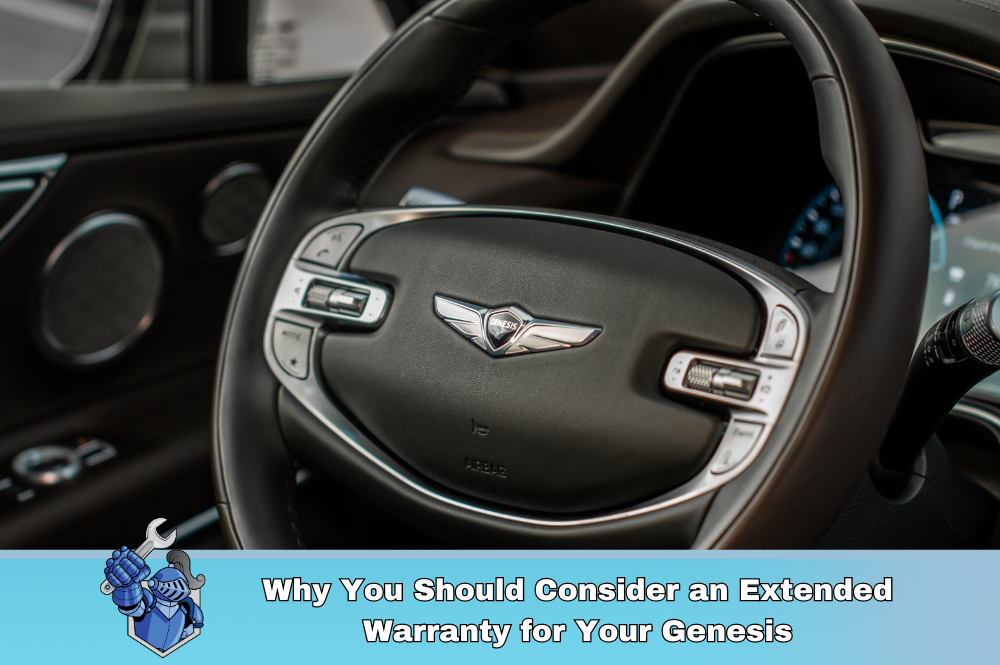 Why You Should Consider an Extended Warranty for Your Genesis
Why You Should Consider an Extended Warranty for Your Genesis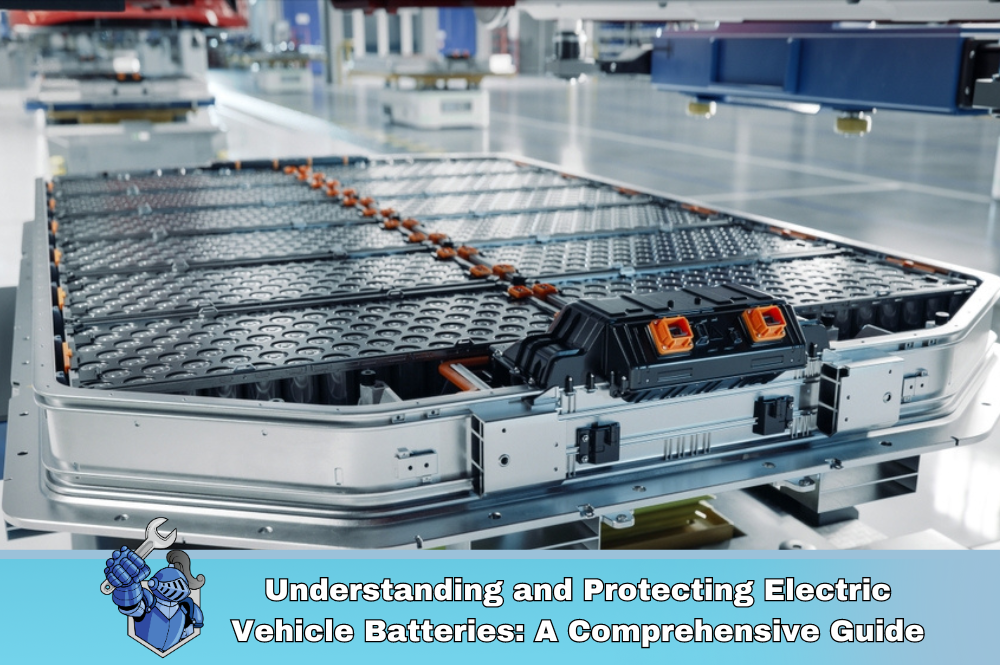 Understanding and Protecting Electric Vehicle Batteries: A Comprehensive Guide
Understanding and Protecting Electric Vehicle Batteries: A Comprehensive Guide Keep Your Engine Cool: The Must Have Guide to Car and Truck Water Pumps
Keep Your Engine Cool: The Must Have Guide to Car and Truck Water Pumps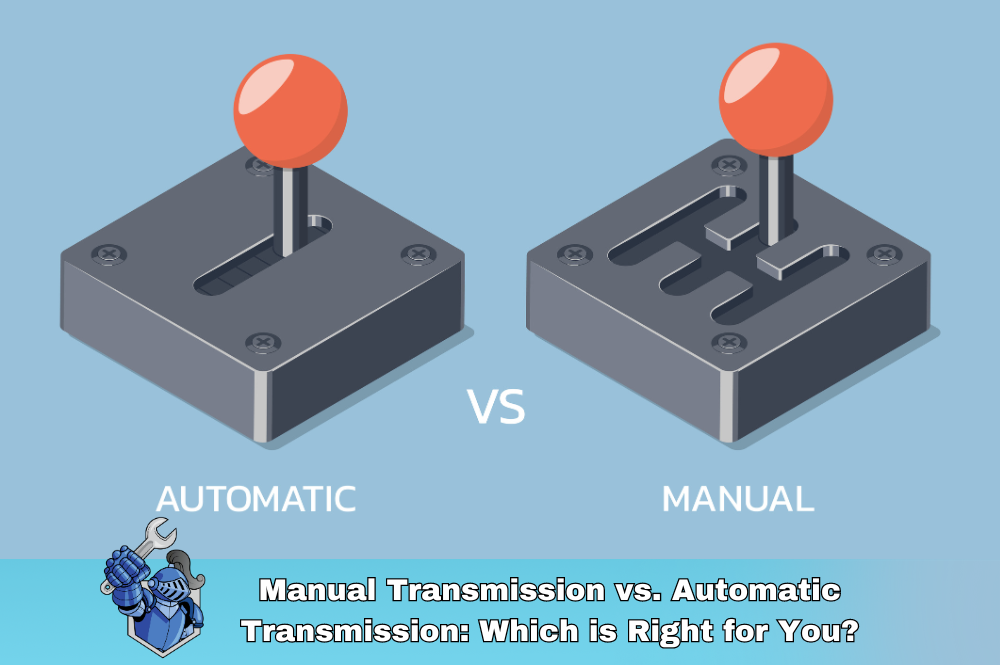 Manual Transmission vs. Automatic Transmission: Which is Right for You?
Manual Transmission vs. Automatic Transmission: Which is Right for You?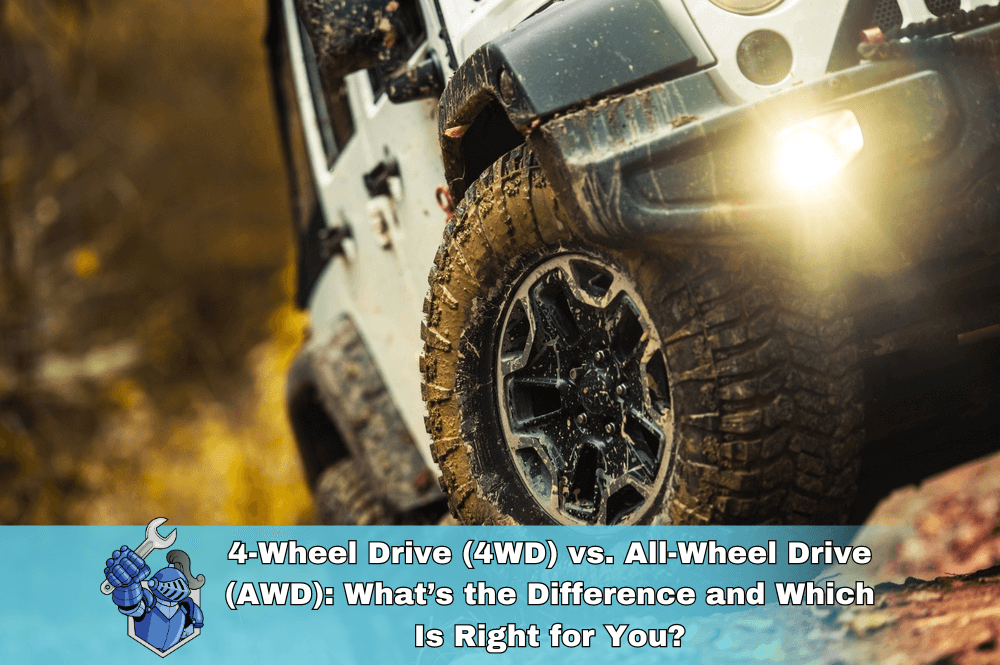 4-Wheel Drive 4WD vs All-Wheel Drive AWD: What’s the Difference and Which Is Right for You?
4-Wheel Drive 4WD vs All-Wheel Drive AWD: What’s the Difference and Which Is Right for You? The Importance of Choosing the Right Fuel for Your Vehicle: Why It Matters and How It Affects Your Auto Warranty
The Importance of Choosing the Right Fuel for Your Vehicle: Why It Matters and How It Affects Your Auto Warranty Toyota FJ Cruiser: A Comprehensive Review
Toyota FJ Cruiser: A Comprehensive Review The True Cost of Maintaining a Toyota: Is It Really as Affordable as You Think?
The True Cost of Maintaining a Toyota: Is It Really as Affordable as You Think? How Much Does a Car Warranty Cost? A Comprehensive Guide
How Much Does a Car Warranty Cost? A Comprehensive Guide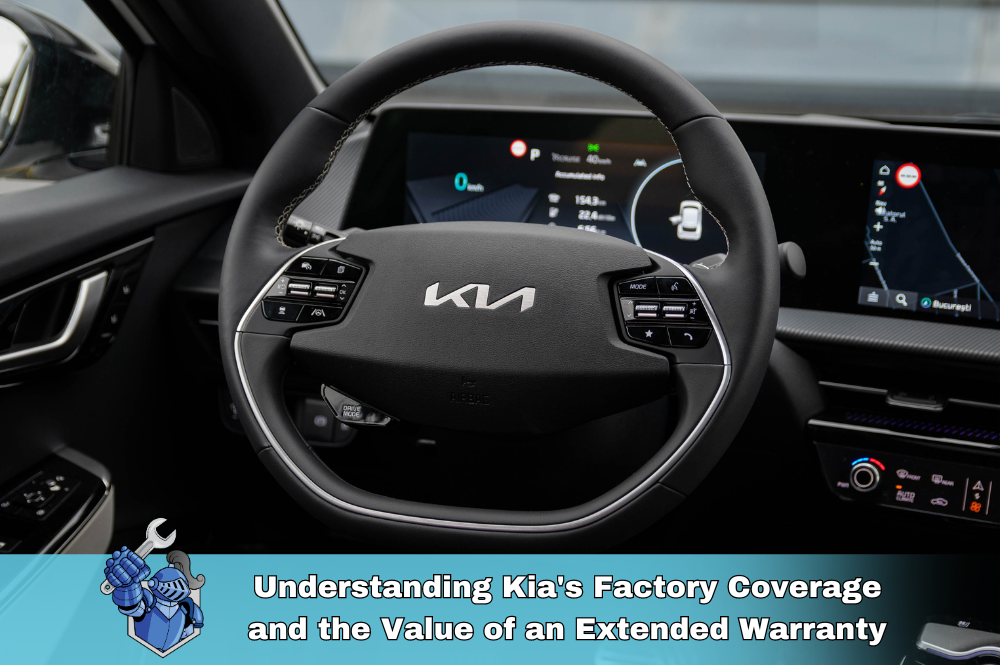 Understanding Kia's Factory Coverage and the Value of an Extended Warranty
Understanding Kia's Factory Coverage and the Value of an Extended Warranty The Pros of an Extended Warranty: Why It’s Worth the Investment
The Pros of an Extended Warranty: Why It’s Worth the Investment Supporting Meals on Wheels NobleQuote's Commitment to Community Well-being
Supporting Meals on Wheels NobleQuote's Commitment to Community Well-being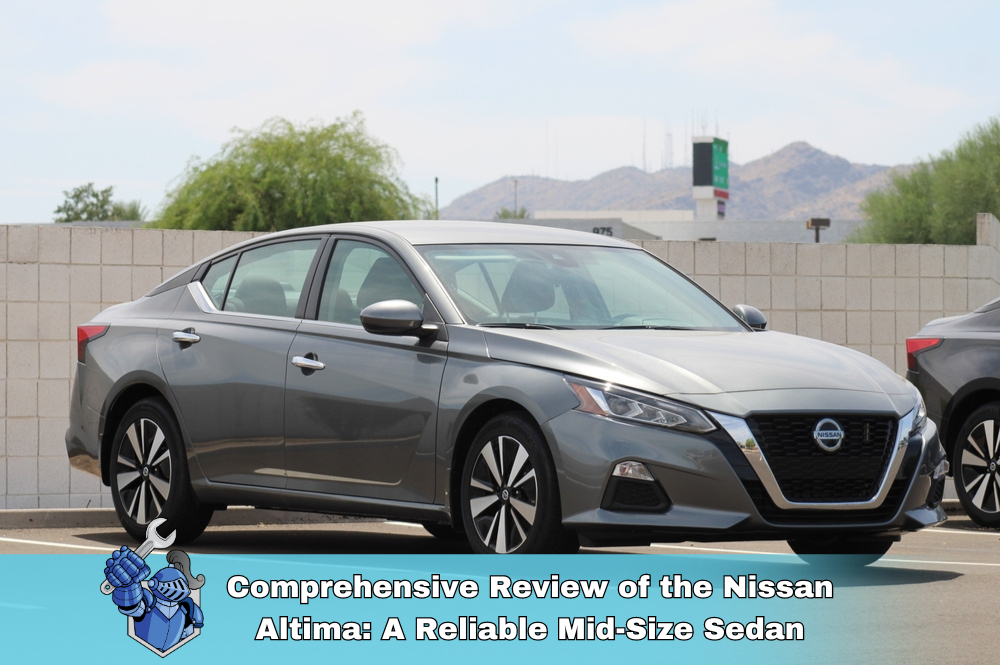 Comprehensive Review of the Nissan Altima: A Reliable Mid-Size Sedan
Comprehensive Review of the Nissan Altima: A Reliable Mid-Size Sedan The Ultimate Guide to Car Tires: Everything You Need to Know
The Ultimate Guide to Car Tires: Everything You Need to Know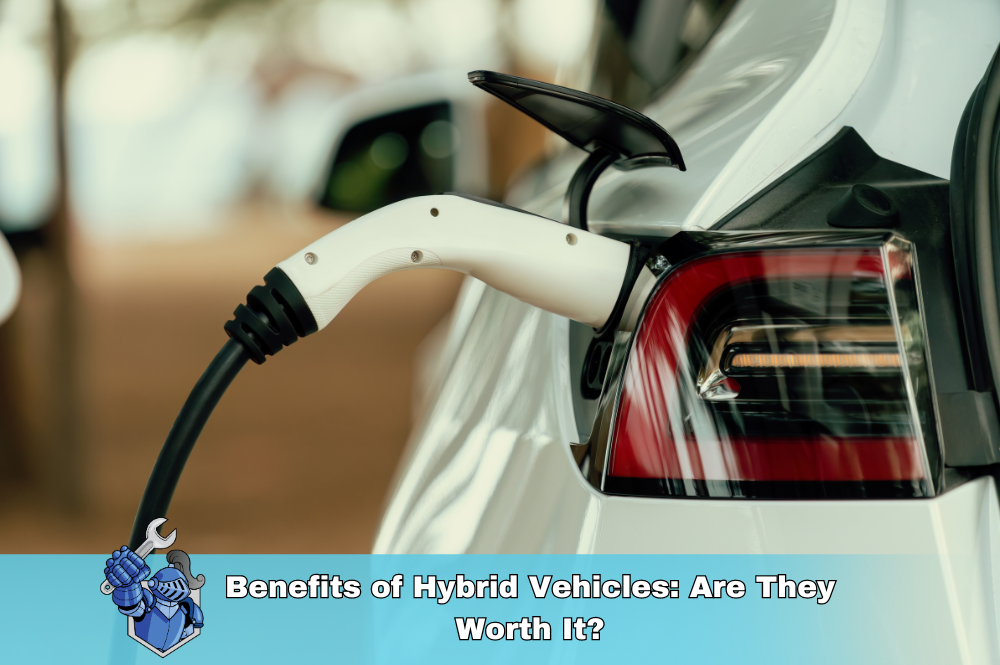 Benefits of Hybrid Vehicles: Are They Worth It
Benefits of Hybrid Vehicles: Are They Worth It Understanding Extended Warranties for Hyundai Vehicles
Understanding Extended Warranties for Hyundai Vehicles NobleQuote: Proudly Consumer Affairs Accredited
NobleQuote: Proudly Consumer Affairs Accredited Top 10 Tips for Car Battery Health and Replacement
Top 10 Tips for Car Battery Health and Replacement Unveiling the Toyota Land Cruiser: A Comprehensive Review
Unveiling the Toyota Land Cruiser: A Comprehensive Review The Ultimate Guide to Automotive Engine Care
The Ultimate Guide to Automotive Engine Care The Ultimate Guide to Vehicle Suspension: Components, Wear, and Replacement
The Ultimate Guide to Vehicle Suspension: Components, Wear, and Replacement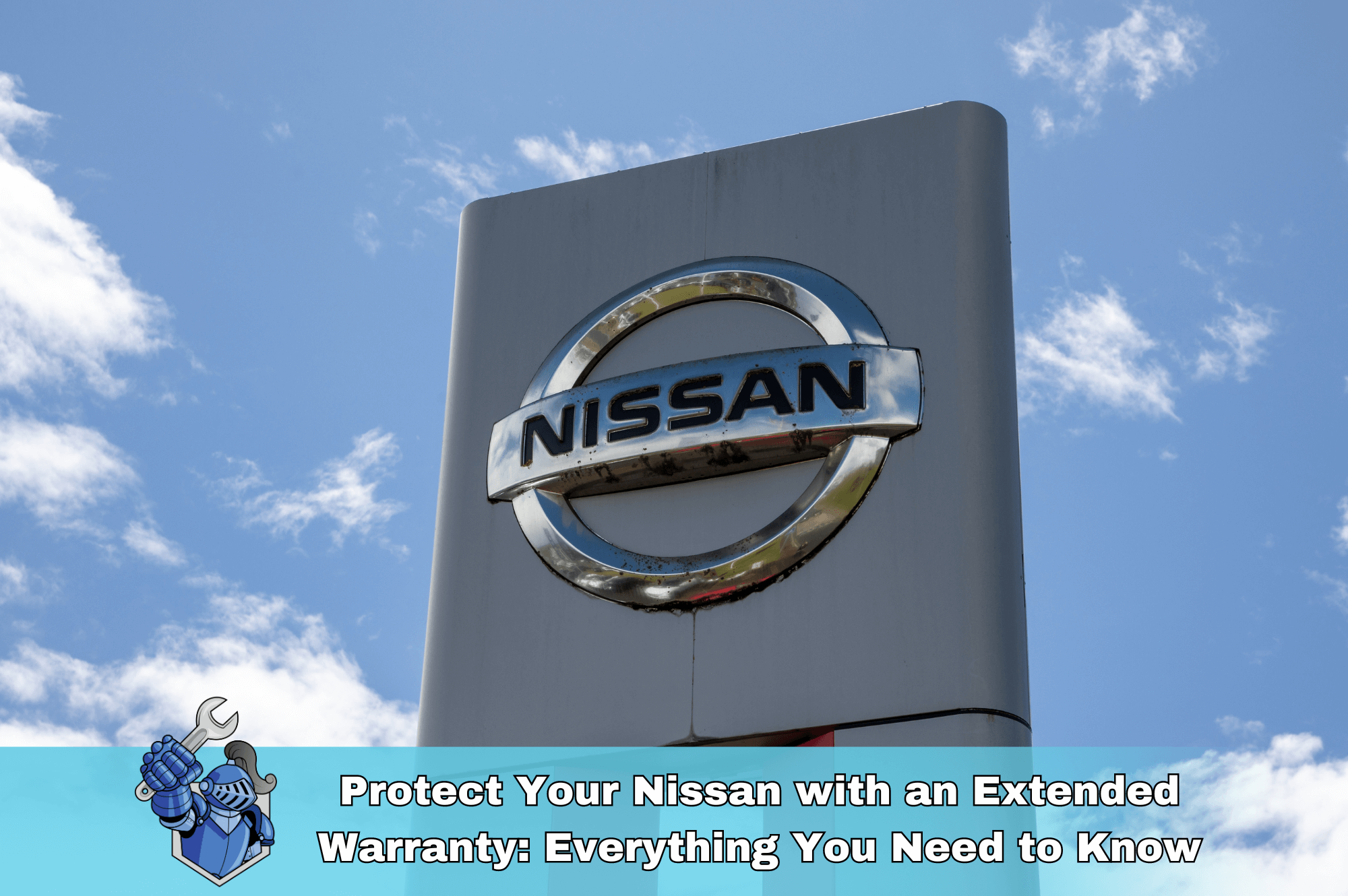 Protect Your Nissan with an Extended Warranty: Everything You Need to Know
Protect Your Nissan with an Extended Warranty: Everything You Need to Know The Ultimate Guide to Vehicle Tire Pressure
The Ultimate Guide to Vehicle Tire Pressure Understanding Exclusionary vs. Inclusionary Vehicle Breakdown Protection
Understanding Exclusionary vs. Inclusionary Vehicle Breakdown Protection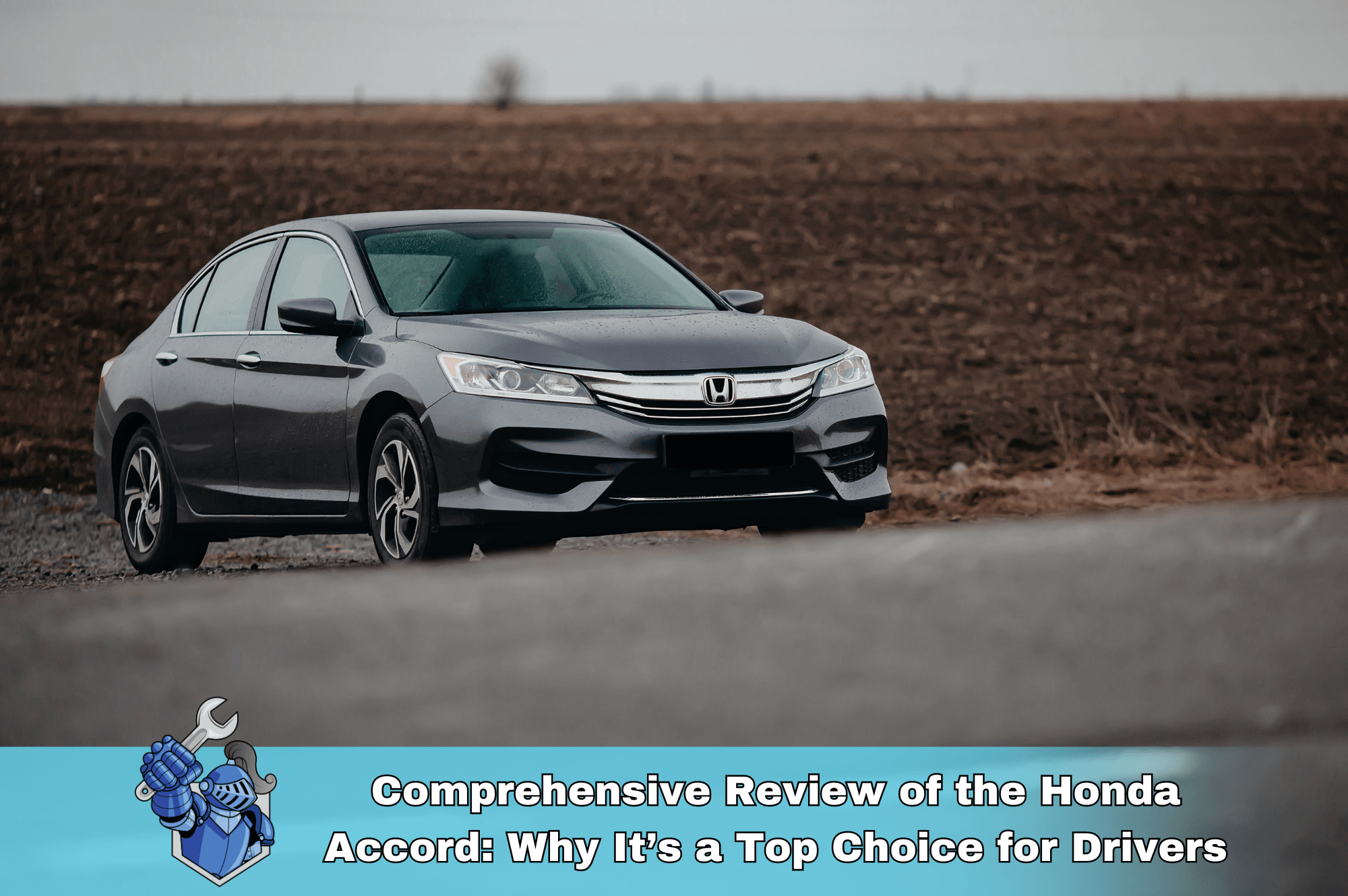 Comprehensive Review of the Honda Accord: Why It’s a Top Choice for Drivers
Comprehensive Review of the Honda Accord: Why It’s a Top Choice for Drivers NobleQuote vs. Concord Auto Protect: A Detailed Comparison
NobleQuote vs. Concord Auto Protect: A Detailed Comparison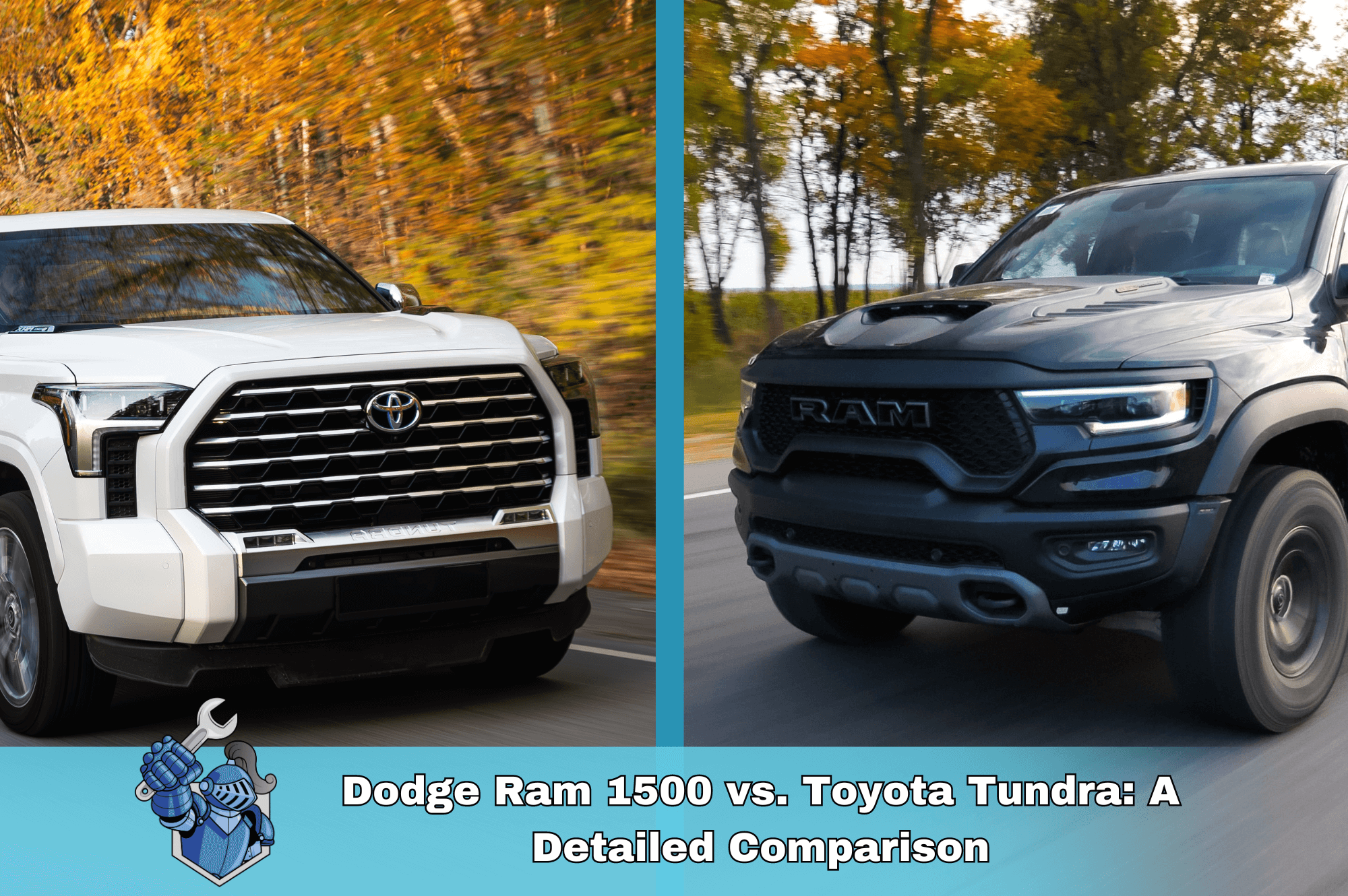 Dodge Ram 1500 vs. Toyota Tundra: A Detailed Comparison
Dodge Ram 1500 vs. Toyota Tundra: A Detailed Comparison Mastering Your Vehicle's Transmission: Everything You Need to Know
Mastering Your Vehicle's Transmission: Everything You Need to Know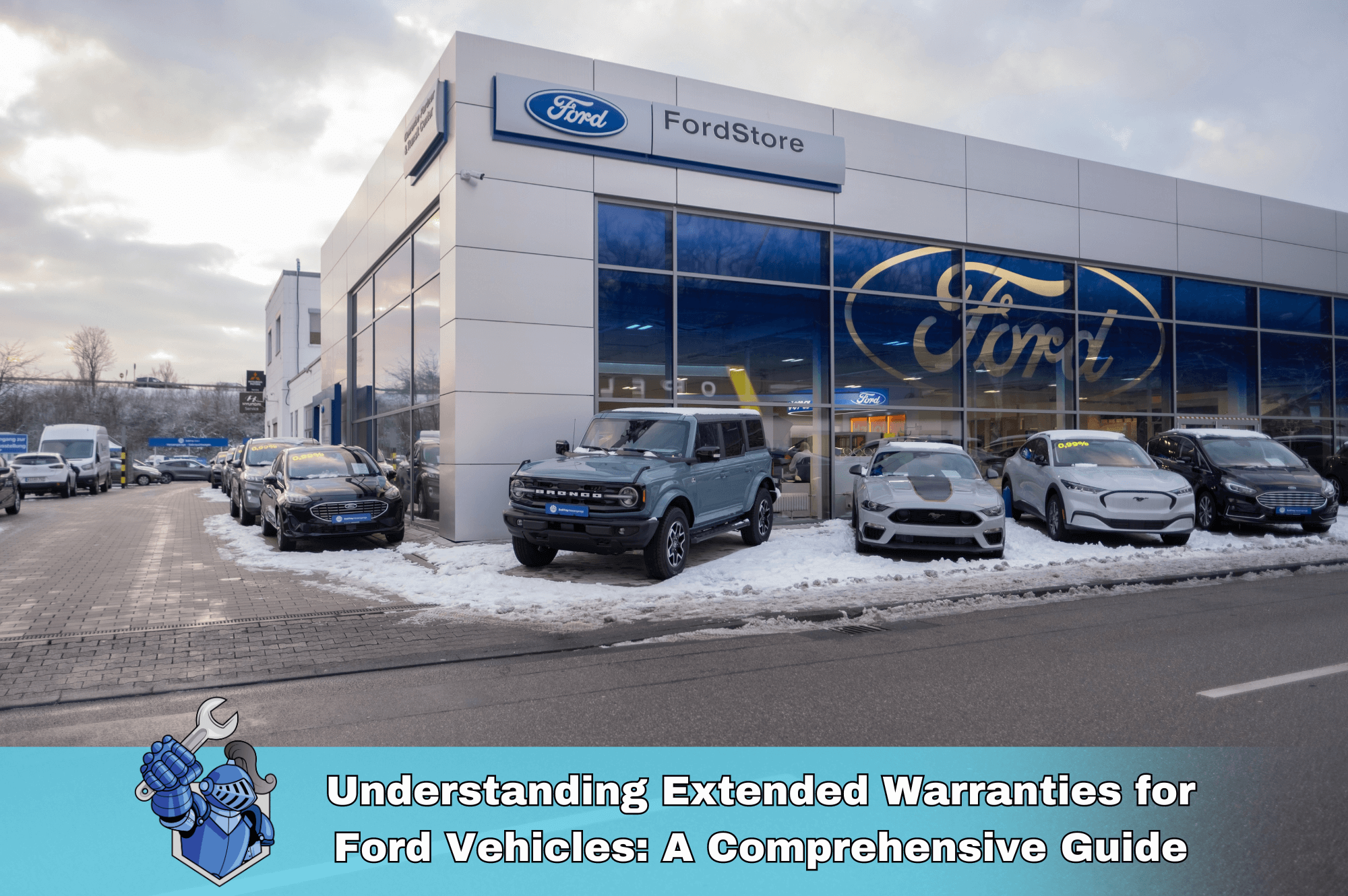 Understanding Extended Warranties for Ford Vehicles A Comprehensive Guide
Understanding Extended Warranties for Ford Vehicles A Comprehensive Guide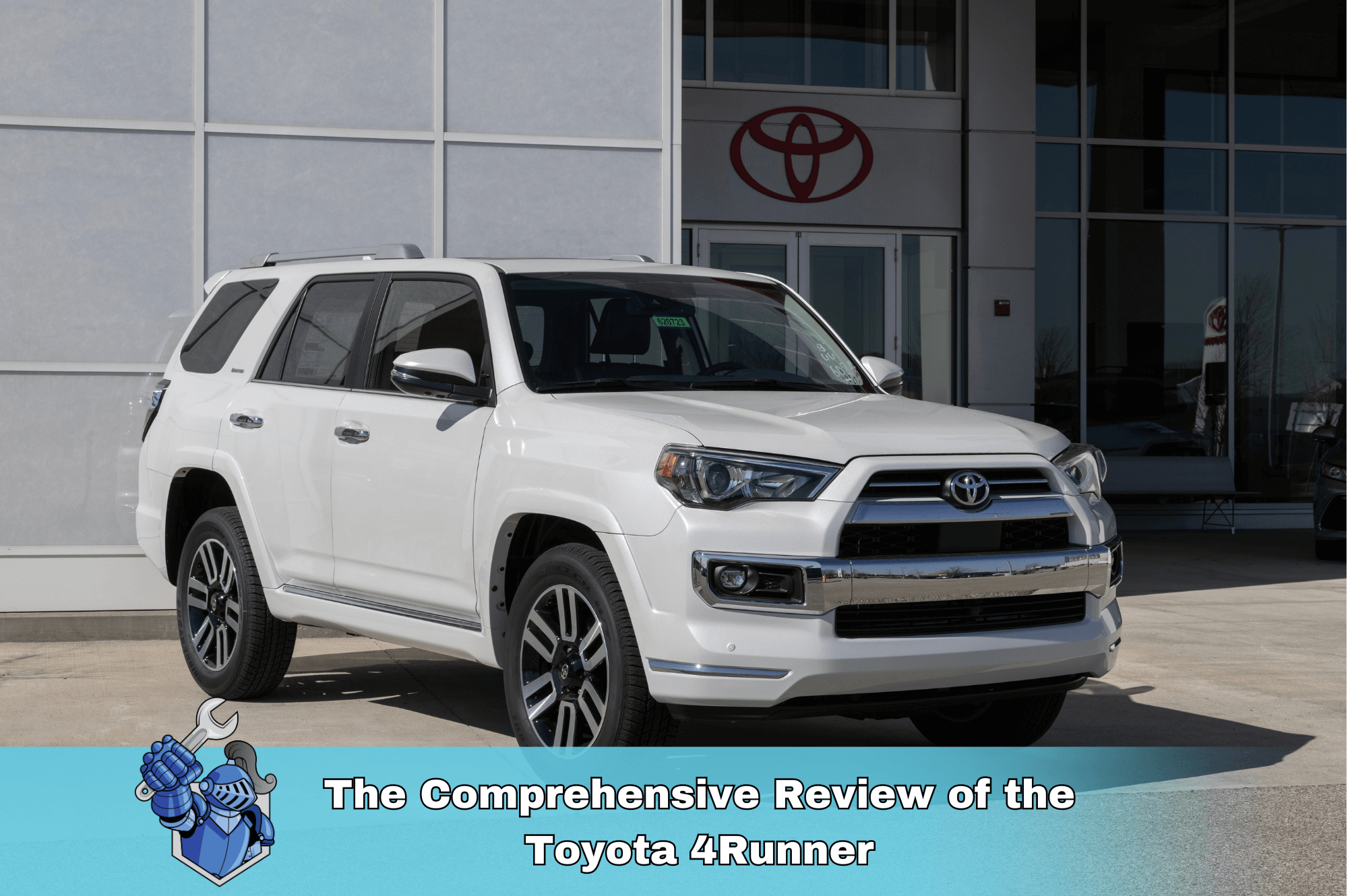 The Comprehensive Review of the Toyota 4Runner
The Comprehensive Review of the Toyota 4Runner
